THE QUARTERLY LEADERSHIP & PERFORMANCE JOURNAL OF THE LMA.
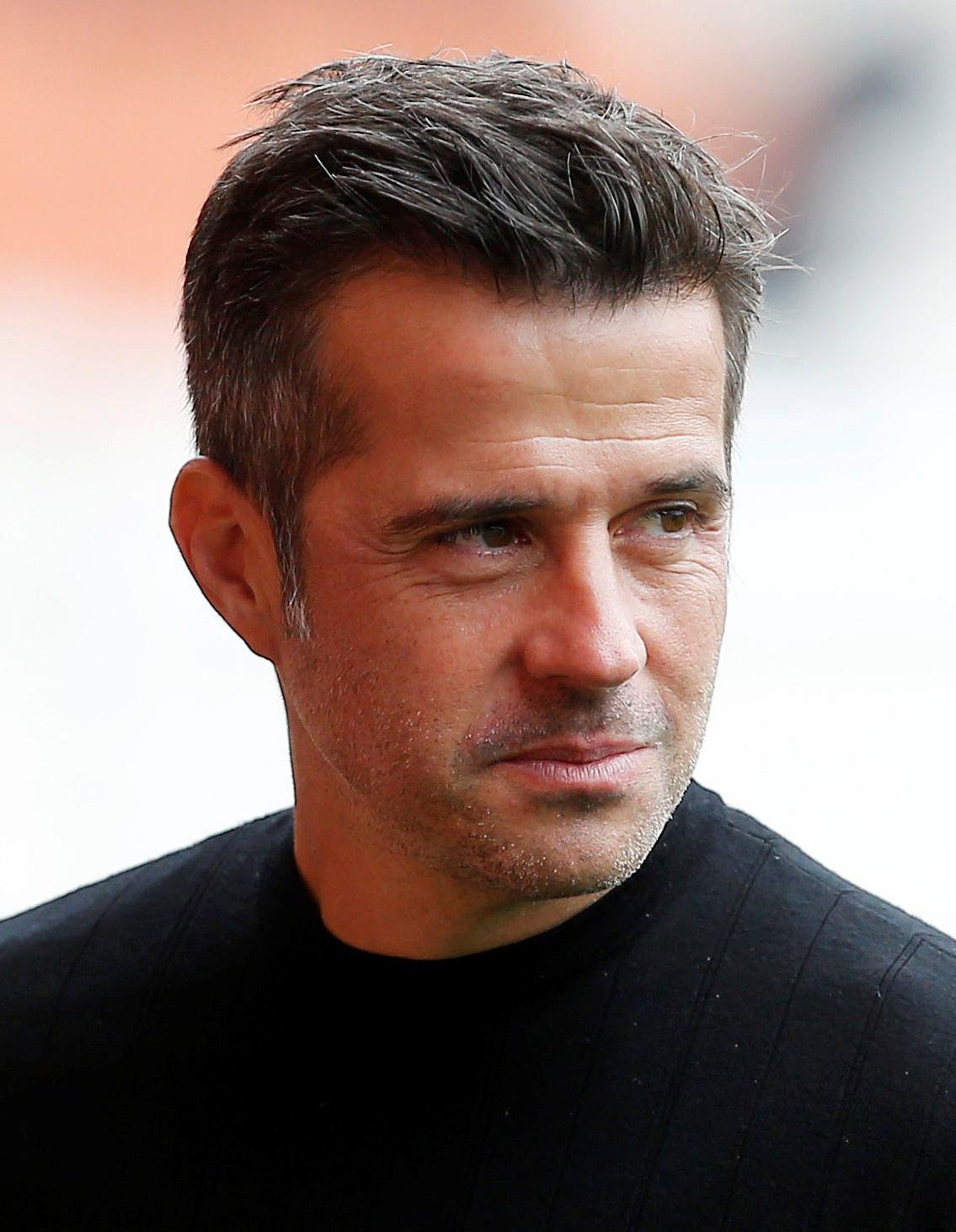




The end of the season gives the LMA an opportunity to congratulate all of its members for their outstanding achievements, and it was particularly special to do so in person at the 30th LMA Annual Awards Dinner in May. Liverpool Manager Jürgen Klopp won the Sir Alex Ferguson Trophy for the LMA Manager of the Year, voted for by all LMA members, for the second time in three seasons in recognition of a remarkable and consistent level of elite-level leadership across all competitions.
I would also like to congratulate those winners who were recognised and voted for by their peers in their respective leagues: Jürgen Klopp (Premier League Award sponsored by Barclays), Emma Hayes OBE (Barclays FA WSL), Matt Beard (FA Women’s Championship), Marco Silva (Sky Bet Championship), Leam Richardson (Sky Bet League One) and Matt Taylor (Sky Bet League Two). These awards recognise the skill set needed to succeed in leadership, management and coaching. Meanwhile, HCA Healthcare UK’s Dr Sally Harris and Manchester United’s Kath Phipps were also recognised for their outstanding contributions to football.
The LMA is a strong and vibrant association, made so by its extraordinary team who I’d like to thank for their unrivalled
dedication and effort this season. It is through their professionalism and compassion for our members and their families that we have achieved tangible and lasting progress at the LMA.
The challenge of equality, diversity and inclusion in football remains of utmost importance. What’s more, the wider challenge of behaviour and respect within the game is clear, as we are witnessing an increasing pattern of antisocial behaviour, which should be of serious concern for everyone involved with football. The game will not tolerate any hint of a return to the hooliganism that so tarnished the sport in the 70s and 80s. It also needs to consider an enhanced range of measures to combat antisocial and discriminatory behaviour, including education, safety and security protocols, staff training, improved stadium facilities and
sanctions on clubs.
The safety and security of everyone - players, coaches, managers, club staff and the fans - is of paramount importance and a primary concern for every member of the LMA. We must stamp out any behaviour that threatens the safety, security and wellbeing of those attending a football match in any capacity, ensuring the culture of football remains open and welcoming. The game still has much work to do to ensure that the culture of the game matches and supports its global popularity and visibility.
Finally, the Women’s Euros 2022 are underway, and at the time of writing England have qualified for the quarter finals. The team are going from strength to strength under Sarina Wiegman’s guidance demonstrated by the emphatic 8-0 win over Norway.
 Alice Hoey
Alice Hoey

New managers often face an uphill struggle. They desperately need to bank some early wins, for the sake of morale and to stay in the job long enough to put in place their longer-term plans, but are bogged down with the same legacy issues that the previous managers battled with. Given they’re also often working with demoralised, sometimes demotivated, players, it’s something of a Catch 22.
Why is it, then, that some newly installed managers are able to turn around the fortunes of a team quickly? There will be numerous reasons, but adaptability surely comes high on the list. In our cover interview, Silva talks of “facing stronger opponents who forced us to do something different” having achieved promotion in his first season at Estoril, and speaks of his pride at, “how we were able to change our mindset
in the face of the challenges we were up against,” at Fulham.
When the parameters change - the people, the processes, the club environment, and in Silva’s case even the league and country - simply doing what worked before is unlikely to be enough. Everything, from the mentality of the team to your own leadership approach, may need to be reassessed if you’re to flourish in your new environment.
And, of course, adaptability is just as important for those managers lucky enough to have been in the same job for years. The willingness and ability to evolve and develop is in itself a performance factor. If we learned one thing from the last few years it’s that it really isn’t the strongest who survive, but those most adaptable to change.
When Marco Silva was voted by his peers LMA Sky Bet Championship Manager of the Year it wasn’t simply because he achieved promotion back to the Premier League with Fulham. He did it in what was only his first season with the club, and in style. To make such an impact when taking on a new team is no mean feat.Kerry London specialises in providing travel cover for the Sporting industry. With over 35 years’ experience, and as a Lloyd’s of London accredited broker, Kerry London is wellpositioned to offer bespoke insurance advice for individuals and their families.

From one-off trips to multi-travel solutions, we provide insurance designed to cover medical expenses, trip cancellation or lost luggage.
Kerry London is proud to be the trusted insurance broker to the LMA. We take care getting to know your exact insurance needs; where you are going, how long you are going for and what you will be doing when you get there. Our service doesn’t stop there. Should you need to make a claim, our in-house specialist team will manage it for you quickly and efficiently.
Tel: 01923 211290
Email: lma@kerrylondon.co.uk
Web: www.kerrylondon.co.uk
EDITOR
Alice Hoey alicehoey1@gmail.com
EDITOR FOR THE LMA
Sue McKellar Sue.Mckellar@leaguemanagers.com
ART DIRECTOR
Ian Cherry
Ian.Cherry@leaguemanagers.com
CONTRIBUTING EDITOR
Gabriella Ward Gabriella.Ward@leaguemanagers.com
SENIOR WRITER
Mark Farthing Mark.Farthing@leaguemanagers.com
PUBLISHER
Jim Souter Jim.Souter@leaguemanagers.com
The League Managers Association, St. George’s Park, Newborough Road, Needwood, Burton upon Trent DE13 9PD
The views and opinions expressed by contributors are their own and not necessarily those of the League Managers Association, its members, officers or employees. Reproduction in whole or in part without written permission is strictly prohibited.
www.leaguemanagers.com
BUSINESS DEVELOPMENT
Adam Tarrant
Adam.Tarrant@leaguemanagers.com
PHOTOGRAPHY
Reuters, Action Images
PRINT PARTNER
Jellyfish Solutions Limited




// Action Images
 The Sir Alex Ferguson Trophy for the LMA Manager of the Year Award takes pride of place at the Grosvenor Hotel, London, at the 30th LMA Annual Awards Dinner.
The Sir Alex Ferguson Trophy for the LMA Manager of the Year Award takes pride of place at the Grosvenor Hotel, London, at the 30th LMA Annual Awards Dinner.
Jürgen Klopp was announced as LMA Manager of the Year at the 30th LMA Annual Awards Dinner on 24th May. The Sir Alex Ferguson Trophy was presented to the Liverpool manager by LMA President Gareth Southgate OBE and LMA Board member Sir Alex Ferguson CBE.

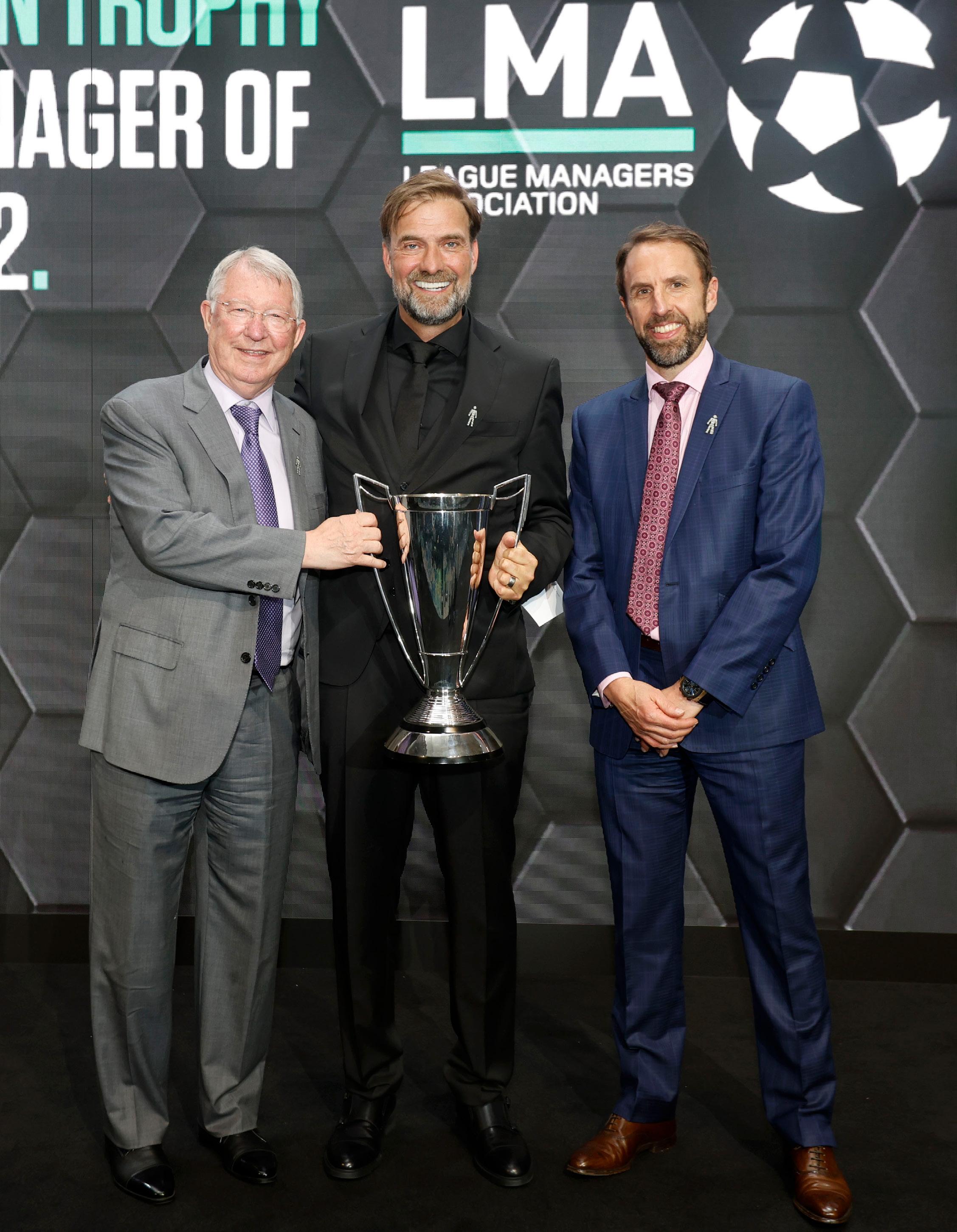
Sir Alex Ferguson CBE and Gareth Southgate OBE present Jürgen Klopp with the Sir Alex Ferguson Trophy. // Action Images
The LMA Manager of the Year award is voted for by the full LMA membership, and the five other contenders who received the most votes were, in alphabetical order: Steve Cooper (Nottingham Forest), Pep Guardiola (Manchester City), Eddie Howe (Newcastle United), Nathan Jones (Luton Town) and David Moyes (West Ham United).
On being presented with his award, Klopp said: “To be voted the winner of the LMA Manager of the Year Award by my colleagues is really important to me. I celebrate this award with my team of coaches and staff. I believe football is a team sport and I would be nothing without my team. It’s all about what you do together.”
LMA Executive Committee member Sir Alex Ferguson CBE said: “Jürgen Klopp is without doubt one of the most talented managers of our generation. Season upon season he demonstrates his ability to excel in both domestic and European football.
Jürgen Klopp is without doubt one of the most talented managers of our generation. Season upon season he demonstrates his ability to excel in both domestic and European football.
Sir Alex Ferguson CBE
“I applaud not only the outstanding football he and his team deliver but also Jürgen’s fantastic man management skills and the culture he has instilled at Liverpool. Jürgen has built not just a team of talented footballers but a club family where his players and staff clearly care for all of those around them.”
Klopp also won Premier League Manager of the Year, sponsored
by Barclays, following a panel and public vote. Recently promoted managers Marco Silva (Sky Bet Championship - Fulham), Leam Richardson (Sky Bet League One - Wigan Athletic), Matt Taylor (Sky Bet League Two - Exeter City) and Matt Beard (The FA Women’s Championship - Liverpool) were voted by their peers as Manager of the Year in their respective leagues.
Emma Hayes OBE (Chelsea) won the Barclays FA WSL Manager of the Year following a voting process involving WSL Managers, an esteemed Barclays panel of respected individuals within women’s football and a public vote.
Dr Sally Harris (HCA Healthcare UK) was presented with the LMA Special Recognition Award for her outstanding and ongoing support of the LMA Wellness programmes, while Manchester United’s Kath Phipps (Manchester United) was presented with the LMA Service to Football Award. The accolade recognised her outstanding long service at Manchester United Football Club, where she will has worked for nearly 54 years as the club receptionist.
Chris Ramsey MBE and Manisha Tailor MBE (QPR) were presented with the Kick It Out and Sky Inclusion Champion Award for their roles in helping to change the face of academy coaching in football for under-represented groups.




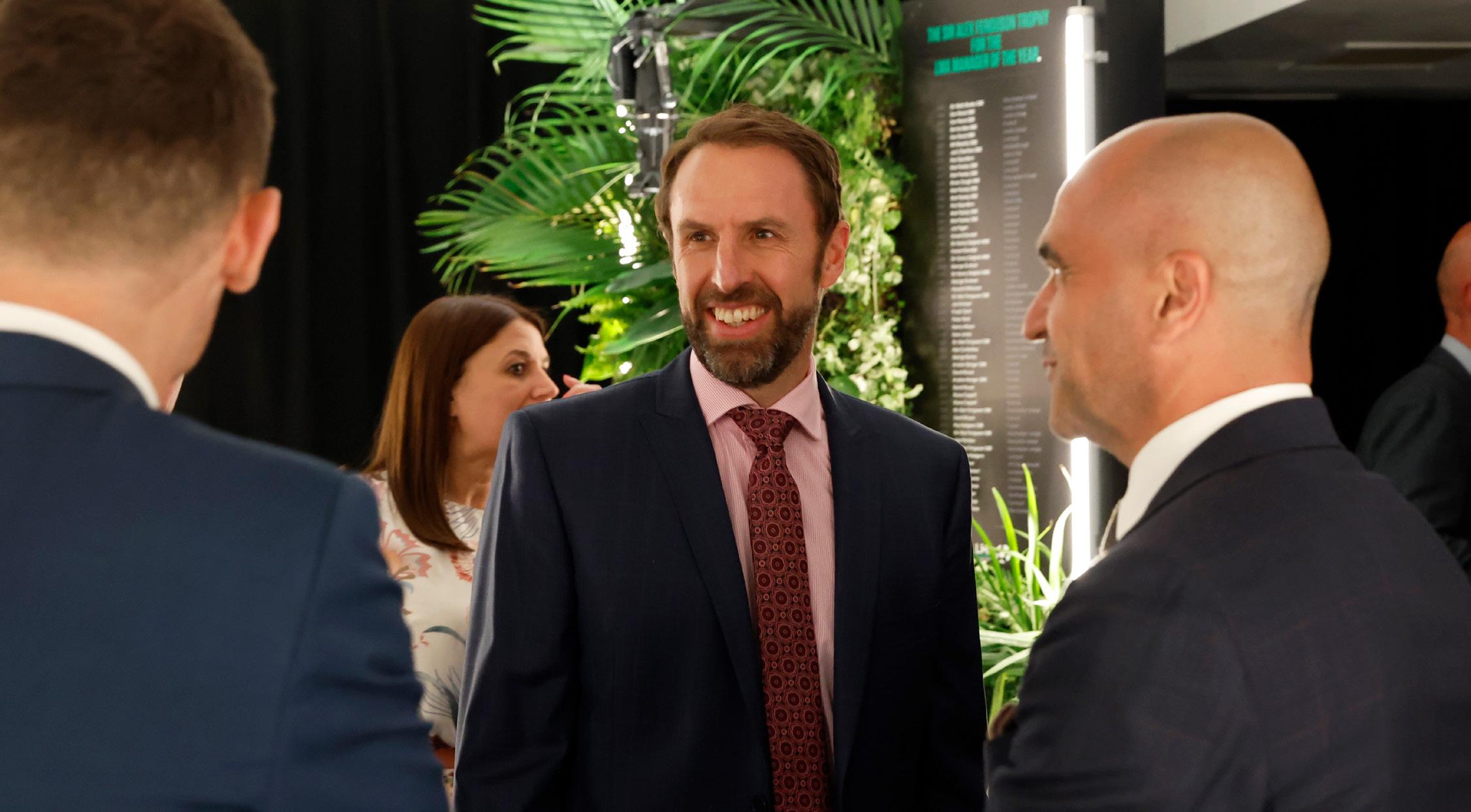
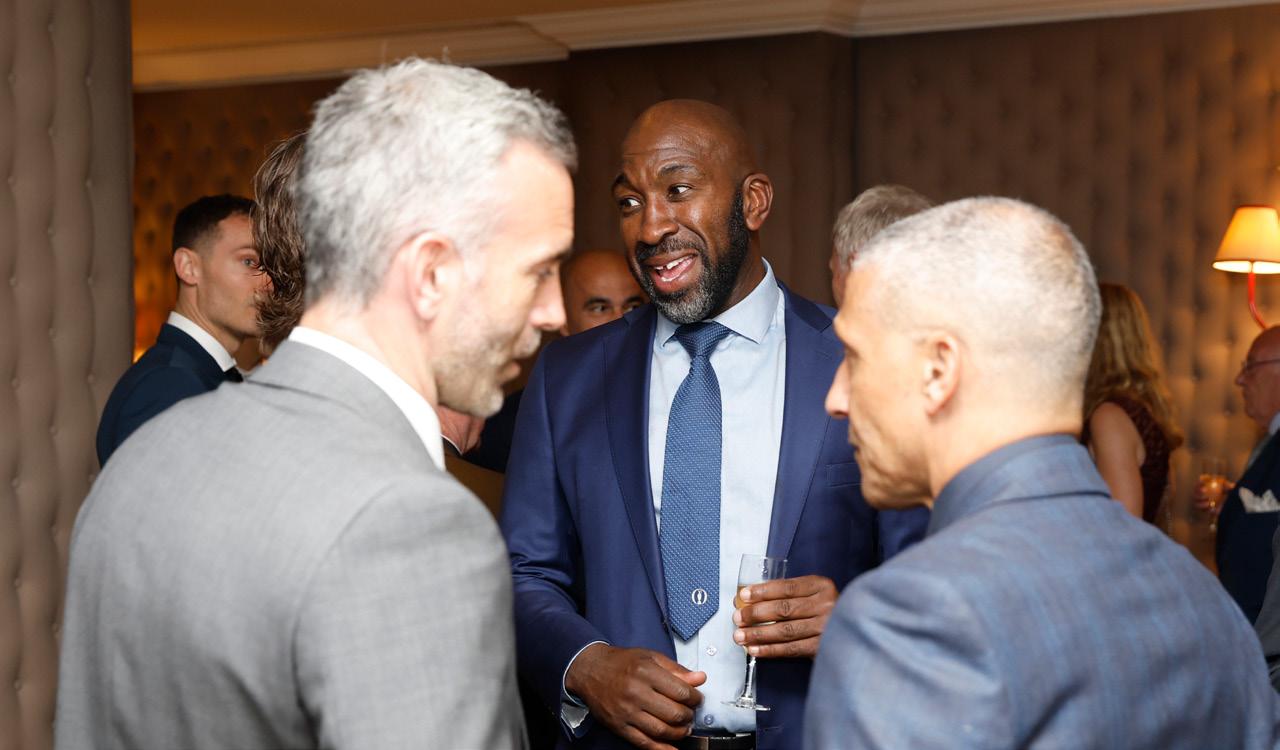

SIR ALEX FERGUSON TROPHY FOR THE LMA MANAGER OF THE YEAR 2021/22.

JÜRGEN KLOPP.

PREMIER LEAGUE MANAGER OF THE YEAR 2021/22.
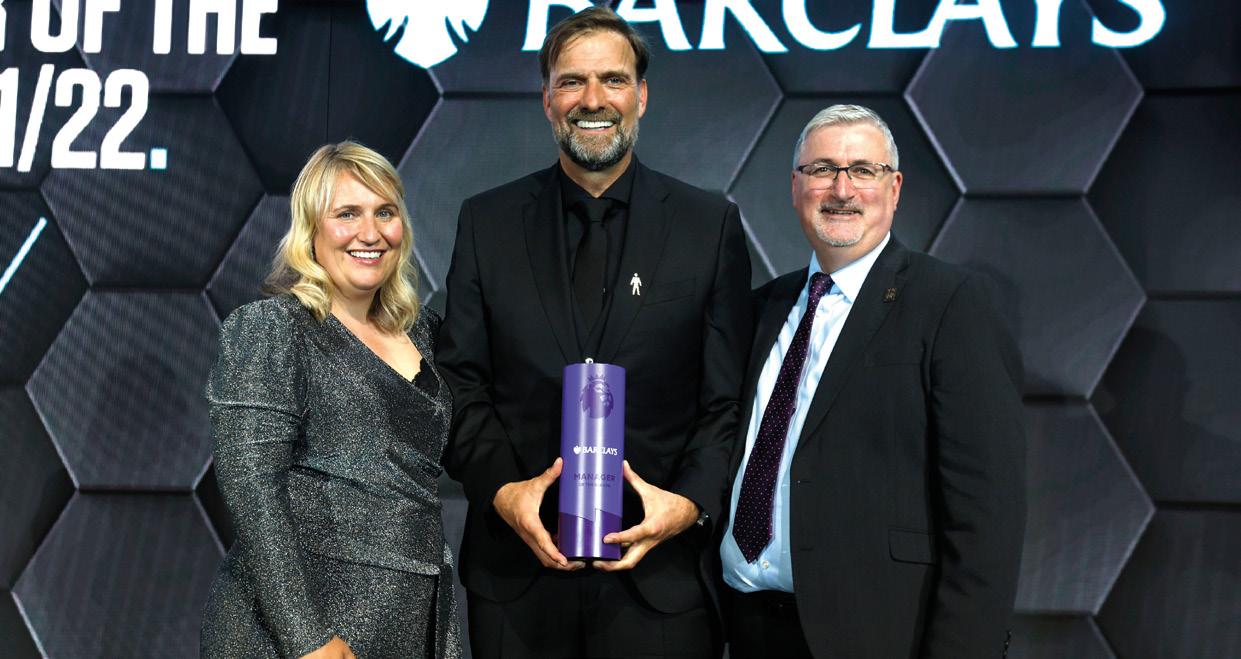

SKY BET CHAMPIONSHIP MANAGER OF THE YEAR 2021/22.
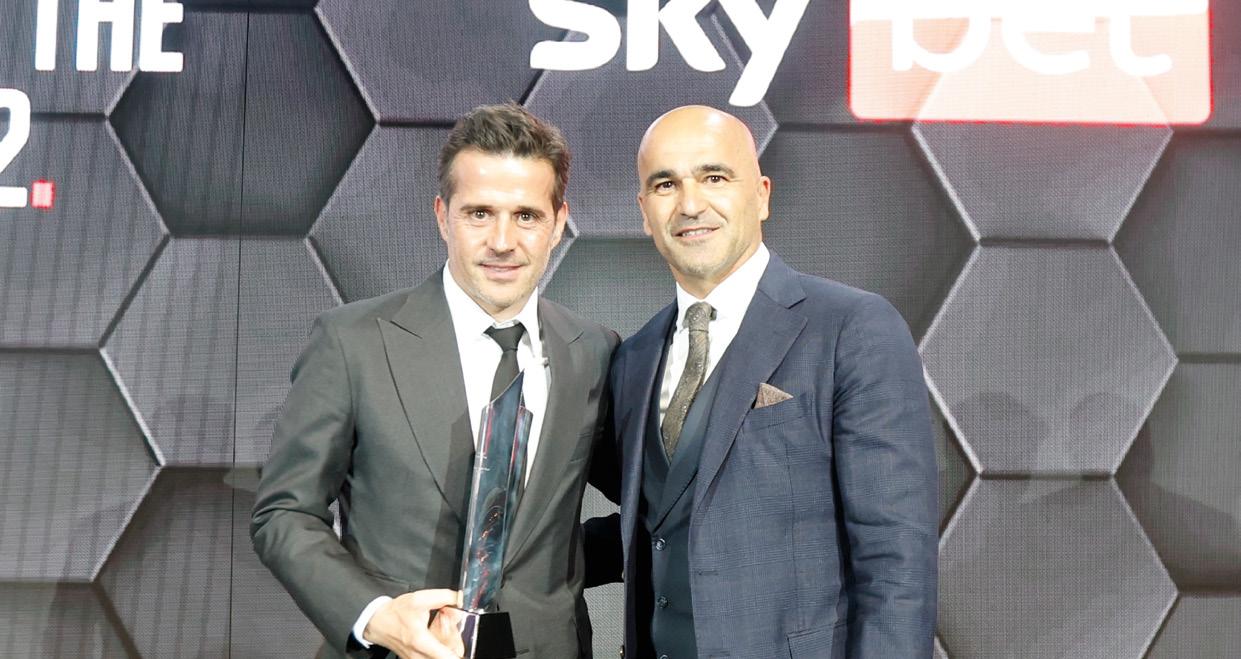
SKY BET LEAGUE ONE MANAGER OF THE YEAR 2021/22.
LEAM RICHARDSON.

BARCLAYS FA WOMEN’S SUPER LEAGUE MANAGER OF THE YEAR 2021/22.


EMMA HAYES OBE.
SKY BET LEAGUE TWO MANAGER OF THE YEAR 2021/22.


MATT TAYLOR. THE FA WOMEN’S CHAMPIONSHIP MANAGER OF THE YEAR 2021/22.
MATT BEARD.
KATH PHIPPS.
KICK IT OUT AND SKY INCLUSION CHAMPION AWARD. CHRIS RAMSEY MBE & MANISHA TAILOR MBE.
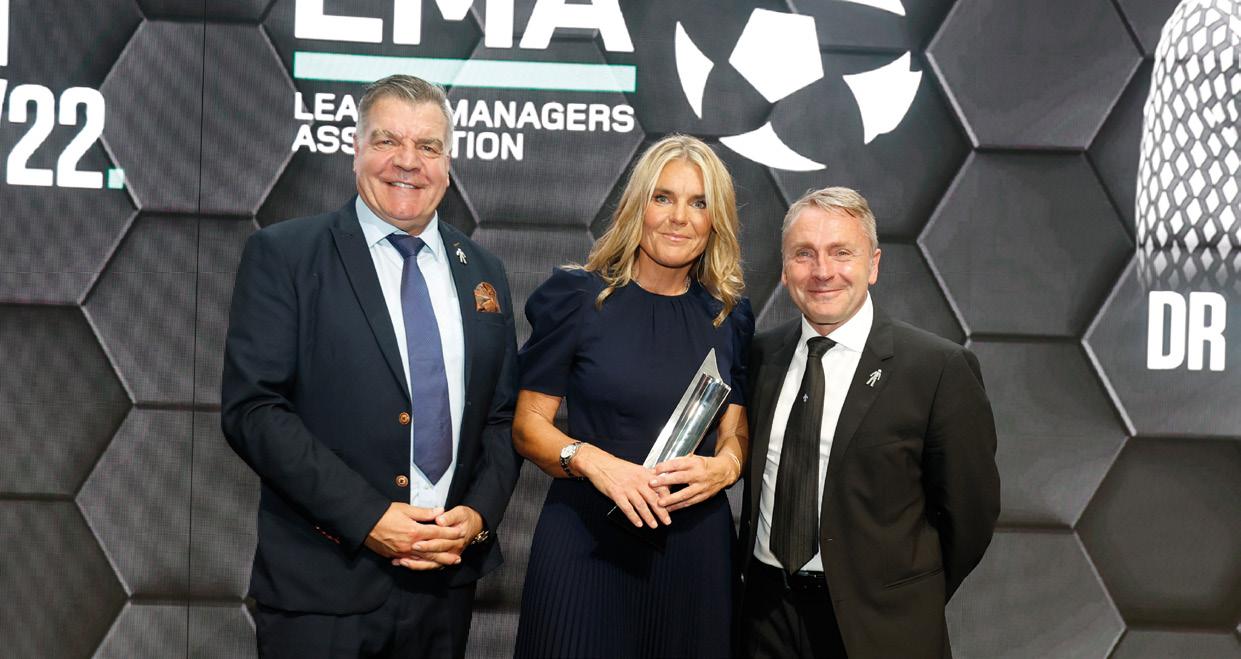
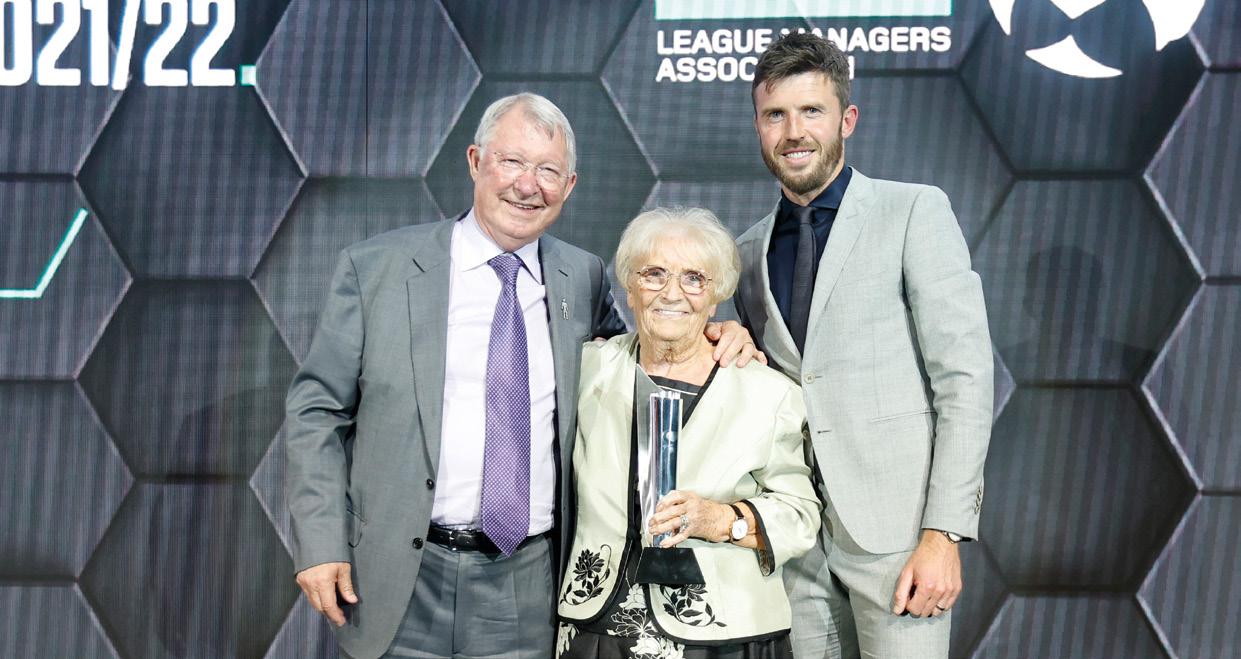


The next-generation venue for football teams to train, relax and reenergise, Carden Park has hosted many international sports teams in 1000 acres of stunning countryside


Luxury spa - two championship golf courses - private dining - gym - 197 rooms





Words:
Dr Nick Pope Managing Director of The Academy of High Performance TeamsAre you a team or a meeting? It’s a question I ask every executive team that I work with. If you spend most of your time updating one another and rubber-stamping decisions that have largely been predetermined outside of the group, then it’s likely you are not a team after all, but a meeting.
In a meeting, it feels like you’re playing an away game and you leave feeling exhausted. The focus is on reporting in and keeping one another up to speed and the accountability is leader driven. In contrast, in a team you feel like you’re playing at home and you leave each day energised. The focus is more on dialogue and co-creating new thinking together, and accountability is peer driven.
Why does this matter? Well, as the most senior team in your organisation, there is a unique strategic contribution that only you can make. It involves working at the right ‘altitude’ to look beyond today’s priorities. Without this altitude, organisations risk ‘compression,’ where everyone operates one level down, usually
leading to micro-management and disempowerment.
Our research has shown that one hour of collective executive time from a FTSE 100 company costs €14,500. Spent a day together on boring updates and irrelevant topics? That just cost you €116,000. What other growth projects could you have funded?
Other research (Mankins, 2004) suggests that one weekly executive meeting may create up to 300,000 hours of other preparatory meetings. That’s 15% of the organisation’s time spent on an internal meeting, not growing the business.
Where being a team, rather than a meeting, matters most however is in your organisational culture.
Executive teams dramatically underestimate how much their behaviour is watched and replicated. Silo working and a lack of collaboration is unquestionably initiated, amplified and sustained from the top.
To start the transformation from meeting to team, you have to get in the right gear. Separate your time into Operational, Strategic, Developmental and Social modes. Constantly switching between these modes in a typical meeting is cognitively exhausting and leads to no sustained action. Aim for fewer, bigger topics that genuinely require the leadership of the whole team, framed with a great question and enough time to fully tap into the collective intelligence.
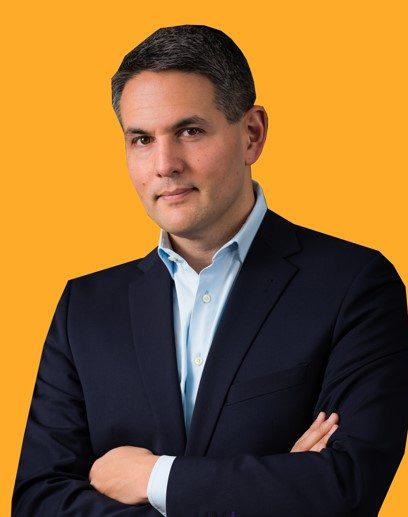
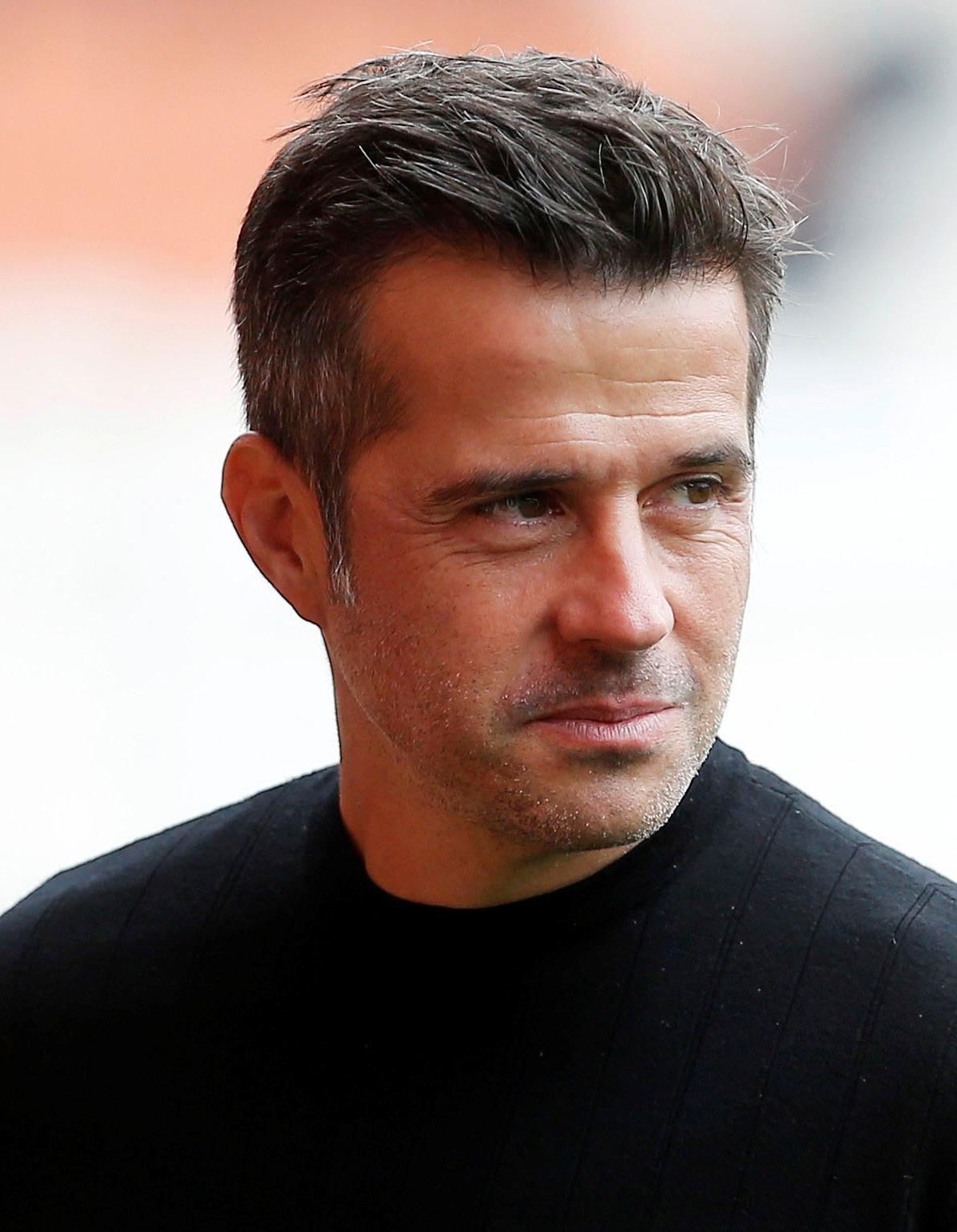 Marco Silva led Fulham back to the Premier League after winning the 2021/22 EFL Sky Bet Championship, scoring over 100 goals during the campaign. Reuters // Action Images
Marco Silva led Fulham back to the Premier League after winning the 2021/22 EFL Sky Bet Championship, scoring over 100 goals during the campaign. Reuters // Action Images
Words: Alice Hoey
Photography: Reuters // Action Images
Voted LMA Sky Bet Championship Manager of the Year by his peers for an incredible season with Fulham, Marco Silva looks back at his formative years in Portugal and how he made his mark on the English leagues.

Taking the reins at a new club is never easy. When your side has just been relegated following a season marked by only five wins, it can seem like an impossible task. Such was the situation facing Marco Silva when he took over at Fulham in July 2021. Despite having inherited players many of whom lacked the confidence they’d need for the challenge ahead, he fought successfully for promotion back into the Premier League, securing it with three games still to go.
“That season in the Championship was a long journey,” says Silva. “To face 46 games, often without proper rest between them, with all the intensity and physicality of the competitive environment creates constant challenges.”
Foremost among his priorities when he joined the club was to create a greater sense of stability and foster a stronger sense of togetherness in the team. “We achieved this in part through changes to the squad, but also by reassessing and communicating the rules and expectations we would all work towards,” he says. “We needed a game philosophy that the players and the fans could really identify with and buy into.”
Silva looked also at more practical performance factors like the players’ daily routines,
all the while ensuring they understood the rationale behind his changes in terms of their development and improvement.
The strategy worked and Silva led Fulham to the Championship title, and into a 2022/23 season back in the Premier League. He feels huge pride at what he, his players and everyone at the club achieved this year, but perhaps more so on a personal level that he was able to repay the trust of the club’s players, owner and fans.
“I feel tremendous pride also in the way we achieved it,” he adds, “the way we were able to change our mindset in the face of the challenges we were up against.” He feels privileged, too, to have been able to help some of Fulham’s players have the best seasons of their careers and to play a part in strengthening the connection between the club and its academy, a bond that has already started to pay dividends.
When Silva took over at Fulham he was no stranger to taking on a side at rock bottom. He had previous experience and had learned from it. In 2016, he and his coaching team joined Hull City, then placed precariously at the bottom of the Premier League. Faced with a divided club and demoralised players and fans it promised to be an uphill task, but one that Silva

Marco Silva acknowledges the Fulham supporters after celebrating securing promotion back to the Premier League.
Reuters // Action Images
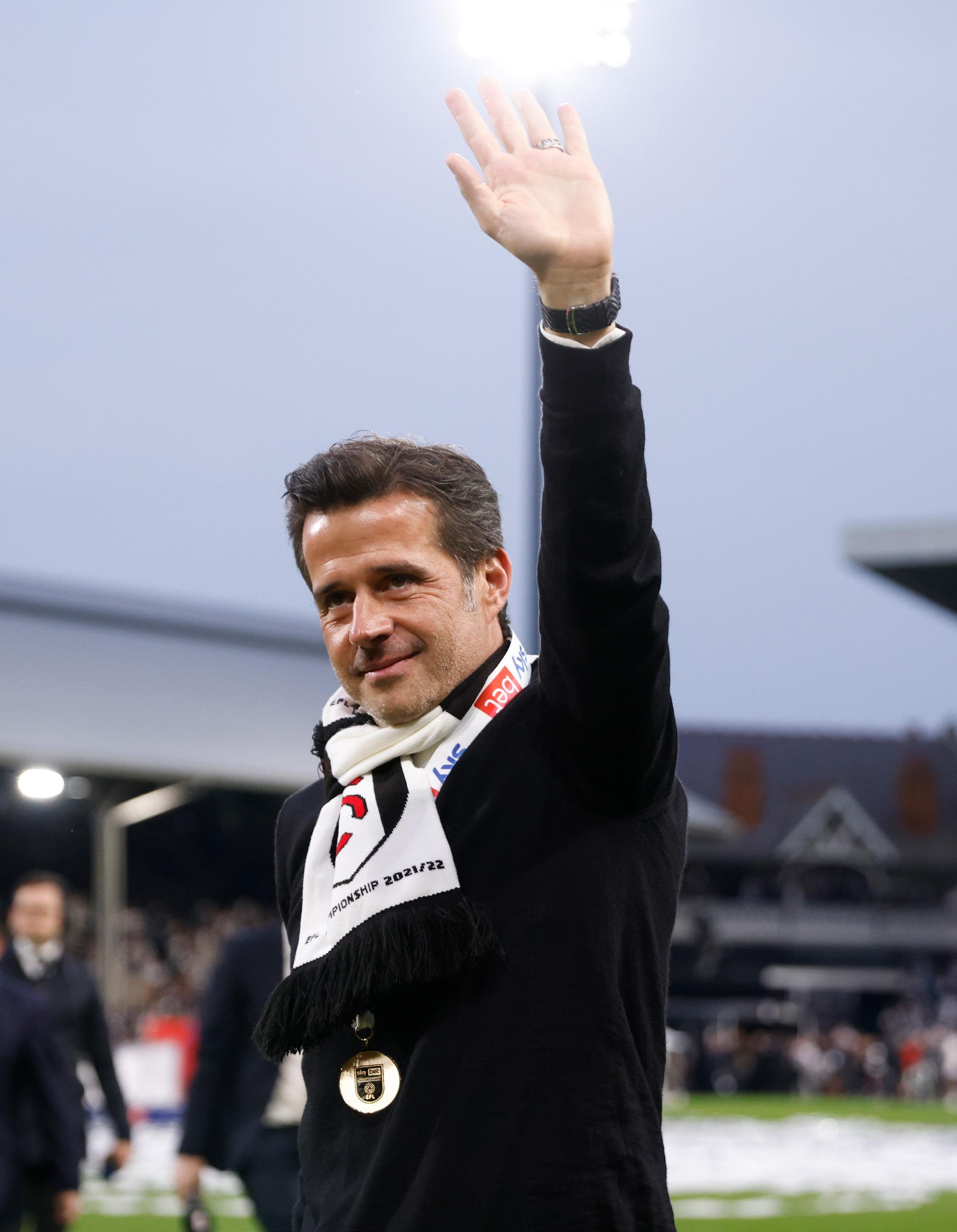
 Silva receives the Sky Bet Championship Manager of the Year Award from Belgium National Team manager Roberto Martinez at the 30th LMA Annual Awards Dinner. Reuters // Action Images
Silva receives the Sky Bet Championship Manager of the Year Award from Belgium National Team manager Roberto Martinez at the 30th LMA Annual Awards Dinner. Reuters // Action Images
was confident they had the knowledge to succeed at.
“Having arrived in what was a foreign country to us in January, already halfway through the competition, we knew we’d have to adapt as quickly as we could in order to make a quick and positive impact at the club,” he says.
We got the wins we needed early on, which is so important in terms of motivation and morale, then the rest was really down to our way of working, having simple and clear goals, instilling passion, and the high work rate and ambition we had every day.”
While, ultimately, Silva and his team were unable to prevent Hull’s slide to relegation, he certainly has no regrets about the experience he gained at the club and his initiation into the Premier League. “It’s the best, most spectacular and hardest competition in the world,” he says, “and competing against the best managers and best teams is the biggest challenge any manager can hope for in their career.”
It had long been an ambition of Silva’s to following in the footsteps of compatriots José Mourinho and André VillasBoas, to manage in the English top flight. However, Hull was
not his first taste of managing outside of his home country.
In 2015, Silva took the manager’s job at Olympiacos, Greece’s most successful club and one with a rich heritage and high expectations. He says that key to his success there was, again, his ability to quickly adapt to the culture of both the country and the club. “What’s more, our deep knowledge of the squad helped us take the league title and demonstrate the quality of play that the fans demanded.”
Silva was by this point no stranger to success. When he retired at 34 from a playing career that lasted 15 years, six of them with Estoril, he spent four months as Sports Director with the Portuguese club, responsible for recruiting and building the squad. When he took over as their coach, he already had a deep knowledge and understanding of the club’s culture and the competition the side was up against.
What’s more, he had a real connection with the players, having either played with them in the past or signed them the previous season. In his first year as manager, Silva led the side from 10th in the second tier of Portuguese football to a league title in 2011 and promotion to the top flight, where they hadn’t featured for the last seven years.
Incredible for a debut season in the top division, Silva achieved a fifth place finish the following season, qualifying for the UEFA Europa League, a feat he repeated with a fourth place finish a year later.
“They were the best years in the club’s history, and ones we are very proud of,” says Silva. “We faced stronger opponents who forced us to do something different, but we had courage and confidence in the quality of our play and processes, and that allowed us to manage expectations and pressure in a positive way.”
With Fulham now in a very different place than when he joined them a year ago, and following all the changes that he has implemented, Silva is confident that his current side can respond in a similiarly positive manner when they return to the Premier League in August.
“Our mindset hasn’t changed,” he says. “We’re prepared for a long season and to work hard, show our identity daily and always remember that the margin of error in the Premier League is minimal. Above all, we want to continue to have a strong connection with the club’s fans and make them proud of us.”
Words: Alice Hoey
Photography: Action Images

Experts have come up with a wealth of theories and models to help us recognise good leadership and to lead more effectively ourselves. Here, Tim Foster MBE looks at some of the main principles and asks how we can put them into practice.
Tim Foster MBE (centre) and his crew mates observe the National Anthem after winning gold at the 1998 World Rowing Championship. Reuters // Action Images
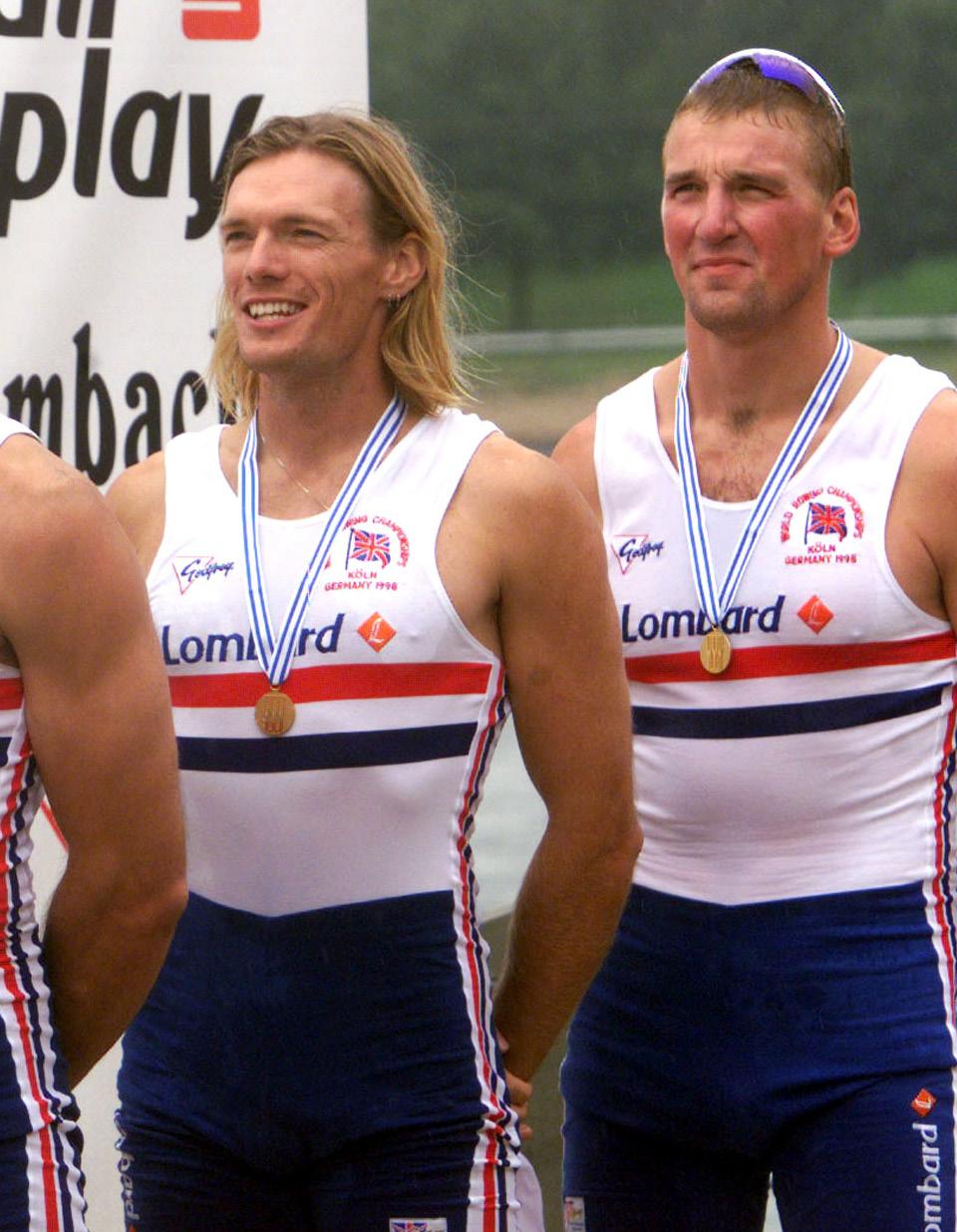
Leadership is so multidimensional that no single definition completely and adequately sums it up. Ultimately though, effective leadership results from a combination of three things: the leader’s personal characteristics; the context they are working in; and the followers that they are leading, which in turn influences their leadership behaviour.
To be most effective as a leader, therefore, it follows that you need to understand yourself, your situation, and your followers, and it’s for that reason that most leadership theories centre on one or more of these three key elements.
Theories around personal characteristics centre on the notion that there are some innate traits and skills that predispose us to be leaders. These are often described within the ‘big 5’ personality traits of extraversion, agreeableness, conscientiousness, openness to experience, and emotional stability, but in terms of leadership may also include emotional intelligence, selfconfidence, determination, integrity, and sociability.
These personal characteristics are easy to measure using personality tests and psychometric profiling, although the theories themselves may
be rather limited in scope. For example, there is evidence that when someone possesses these traits they are more likely to be perceived by others as a leader, but it doesn’t necessarily follow that they will be an effective one. An agreeable extravert might take the lead and be followed, but that doesn’t mean they’re the best person in the room to have done so.
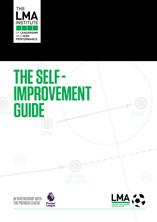


The wide variety of traits that we see among the most high-profile leaders in history – people such as Margaret Thatcher, Winston Churchill, Nelson Mandela, Mahatma Gandhi, Rosa Parks, Steve Jobs and Elon Musk - helps to illustrate how we can each use our characteristics to our advantage.
To do so, and perhaps most importantly for a leader when it comes to personal characteristics, is understanding your personality and how you are perceived by others. After all, it is not what you are or how you feel that matters most, it is how you are viewed by the people you are leading. The aforementioned psychometric profiling and personality tests can help to highlight the strengths and weaknesses in your leadership make-up, as can simply asking the opinions of those around you.
Importantly, once you’ve
The wide variety of traits that we see among the most high-profile leaders in history – people such as Margaret Thatcher, Winston Churchill, Nelson Mandela, Mahatma Gandhi, Rosa Parks, Steve Jobs and Elon Musk - helps to illustrate how we can each use our person characteristics to our advantage.
identified an area of your personality where you are less strong, you need to work consciously to improve that. Similarly, an area of strength can be used more proactively and highlighted to enhance your leadership.
It’s important to remain true to yourself, so don’t try to change too many aspects at once, nor to go from zero to 11; small changes can have a big impact.
Contextual leadership theory focuses less on who leaders are and more on what they do. It says that effective leaders flex their style according to a
range of parameters, including context, situational stress, their own position, ability, and experience; as well as the experience, personality, ability, and motivation of those following them.
Contextual aspects can describe why leaders are sometimes successful in one situation but less so in others; they are not adapting their leadership style accordingly. While practical and easy to conceptualise, contextual theories are difficult to measure. A leader has to assess themselves and the situation and selfregulate.
Good leaders are able to adapt
as is appropriate by combining a task approach, which aims to get the job done, with a relationship approach, which is more human and supportive.
For example, in a situation of high stress, which requires immediate results, an experienced leader with a relatively inexperienced and demotivated team might find that an authoritative approach and concentration on the technical and task aspects of the job is most effective. The same leader in a situation of less immediate pressure, a longer-term perspective and more experienced team members might find
LEADERSHIP THEORY IN PRACTICEthat emphasising personal relationships and engaging the team is more successful. The ability to combine the task and relationship approach to the situation is key.
Good leaders therefore have good awareness of the situation and of how they are perceived, and are able to adapt their leadership approach accordingly.
Behavioural leadership theory states that leadership is a relationship between the leader and their followers, with the leader adapting their behaviour according to the followers’ needs and motives.
This school of thought is the basis of a number of popular leadership approaches, including Transformational, Servant, Authentic and Sacrificial Leadership. While the idea of behavioural leadership feels possibly the most intuitive, it is also rather broad in concept, making it difficult to define, measure or determine what leadership really is.
What’s key in behavioural leadership is to work at identifying the behaviours and approaches that will provoke a positive response and that will best inspire, motivate and empower those following you. That means being aware of how your leadership is received, as
it is not how you feel you have acted but how it is perceived that provokes a response. Having established a culture where openness and honesty are welcomed and rewarded, the simplest and easiest way of understanding your followers, what they require and how they view your leadership behaviour is to ask them.
According to behavioural theory, leadership behaviours can be either positive or negative and described as being power behaviours or attractive behaviours. The idea is that an effective leader shifts and changes between power and attractive behaviours according to their relationship with each member of the team. One common mistake is to be too power oriented to those below
us in position, while being too attractive in behaviour to those above us – therefore leading to a negative perception of our leadership behaviour from those around us.
It’s important to remember again that, in practice, how effective each behaviour will be will depend on the followers’ perception of it. What is seen as confident leadership to some may be considered arrogant to others. What might be viewed as collaborating by one could also be taken as indecisive by another. The more a leader is able to adjust, understand and measure their leadership behaviour according to the individual that they are looking to influence, the more effective their leadership will be.
What’s key in behavioural leadership is to work at identifying the behaviours and approaches that will provoke a positive response and that will best inspire, motivate and empower those following you.
Currently in its pilot year, the LMA Football Leaders Programme, supported by the Premier League, provides bespoke career development support and guidance. Participants co-create a holistic personal development plan, covering health and wellbeing, leadership development, coaching and other vocationally relevant skills. They are then supported through the programme, with regular consultations with the programme’s experts and access to LMA senior members and leaders from other sports.
Chris Davies said, “I’ve really valued the support and development I’ve received while on the Football Leaders Programme. Opportunities for bespoke and quality leadership development are limited, so I’m grateful for the chance to work and interact with Tim Foster and other coaches on the programme.”
Justine Cochrane added, “This last year has been incredible. Never have I experienced such expert support. The LMA Leaders Programme has provided the tools, resources, tasks and people to help me become a better version of myself and it has had a massive impact on how I work, how I lead and how I think about myself.”
An experienced Premier League player that represented the likes of Crystal Palace and West Ham United, and now having had a taste of coaching in the Premier League and most recently at League Two side Colchester, Hayden Mullins is gearing himself up for his next challenge.


A player for 17 years and a former England U21 international, Mullins was acting as Academy Loan Manager at Reading when he was approached with his first proper coaching opportunity. Harry Kewell, then Head Coach of Watford’s U23s, and whose acquaintance he had made on his A Licence course, was looking for an assistant and while Mullins was enjoying his job at Reading it was an opportunity not to be missed. Mullins excelled in the role, later taking over from Kewell as Head Coach.
It was to prove a hugely formative period, despite the constant changes taking place at the club at the time. “Watford changed their first team managers a fair bit over that season, so trying to build relationships with the senior coaching team wasn’t always easy,” says Mullins. “They were, understandably, focused on trying to get results.”
The silver lining, however, was that Mullins was exposed to a series of great coaches, including Nigel Pearson, Italy’s Walter Mazzarri and three Spanish managers. “It was such a great learning experience as a young coach to see at close quarters these different styles and approaches,” says Mullins, “to sit with the first team coach or his assistant during training sessions, to ask them about the thinking
behind them, and to watch and learn from their methods.”
As Head Coach of the U23s, meanwhile, Mullins had the freedom to challenge and express himself as a coach without the relentless pace and pressure of first-team football. “My team set up was essentially a mini version of that,” he says, “with sports science staff, a goalkeeping coach, physio and assistant coach. It was a fantastic environment in which to develop and test out my ideas, the only difference being, with the U23s it wasn’t real. We could lose a few games in a row or concede some goals and we’d learn some important lessons from that. When you get to first-team football, however, those things really start to have repercussions.”
It got real for Mullins halfway through his second season with Watford’s U23s. The club had just sacked their latest manager and, as Mullins was briefing his players in the changing room before a big game, the phone rang. Despite having no history of hiring U23 managers as interims, Mullins was invited to take over the first team with immediate effect, overseeing the next game, away against Leicester, just days away.
“It hit me all at once,” he recalls. “Nothing can prepare you for that, for having to manage
a squad of 30-odd well paid men, many of them unhappy, frustrated, angry even, at the situation they’re facing. I knew I had to somehow galvanise them, win their buy in and get them all focused on heading in one direction.”
As someone who had not long ago been a player himself, and having not yet proven himself as a first-team coach, engaging the players and earning their respect was especially tough. However, Mullins found an ally in the club captain, who remembered him from his playing days, and other influential players, who helped to communicate Mullins’ messages and get the team onside.
He would need it. Watford were bottom of the Premier League and up against top-four Leicester and he had only one and a half days to prepare. “It was manic and a real eye-opener,” says Mullins. “There was so much going on behind the scenes, with such a big group of people involved, many of them wanting some input into how things would happen.”
The side ultimately lost 2-0, despite a performance Mullins was proud of, and he found himself ushered swiftly from the changing room into the media room for yet another baptism of fire. “I’d had no media training, so I wasn’t prepared at all. I had
I knew I had to somehow galvanise them, win their buy in and get them all focused on heading in one direction.
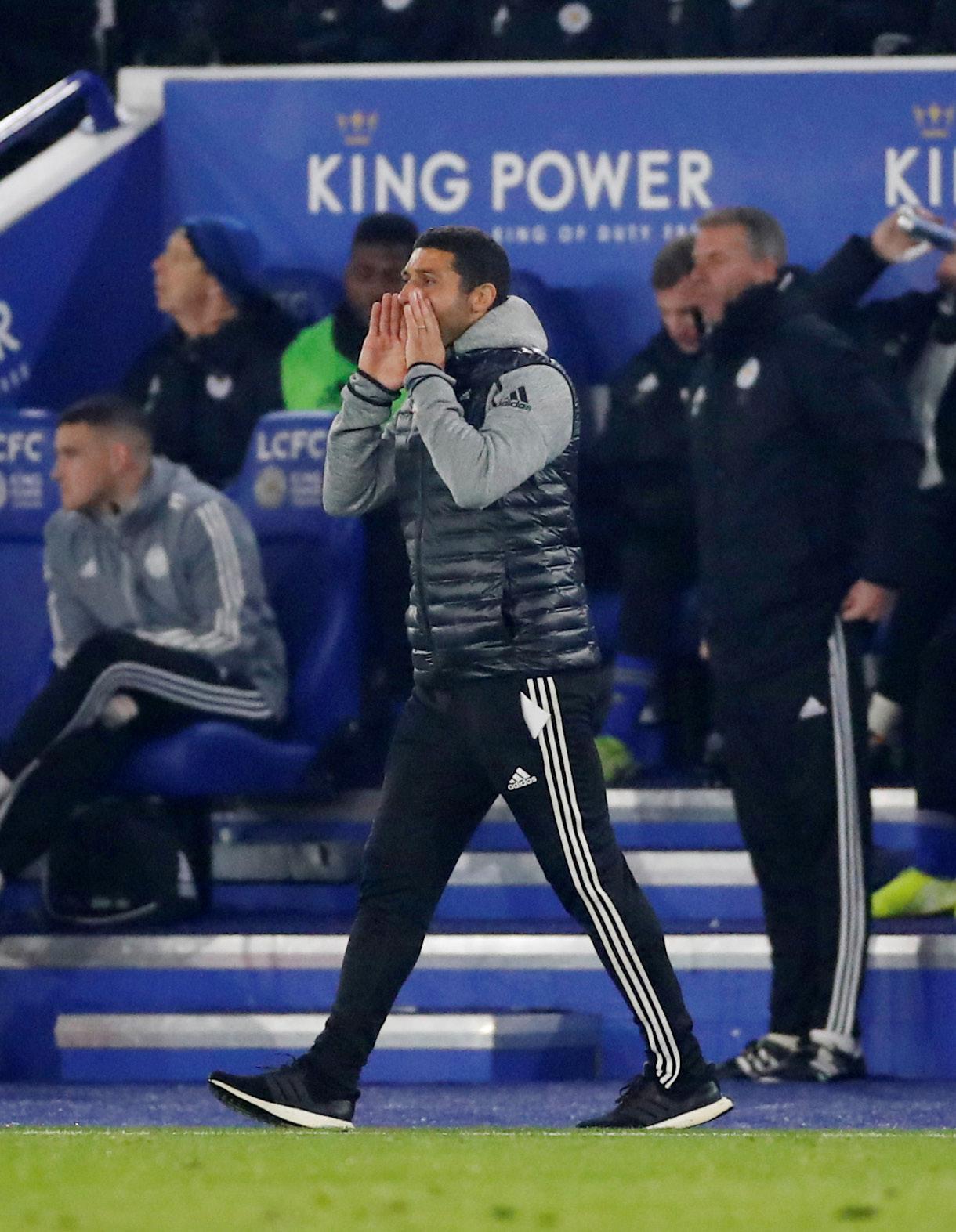

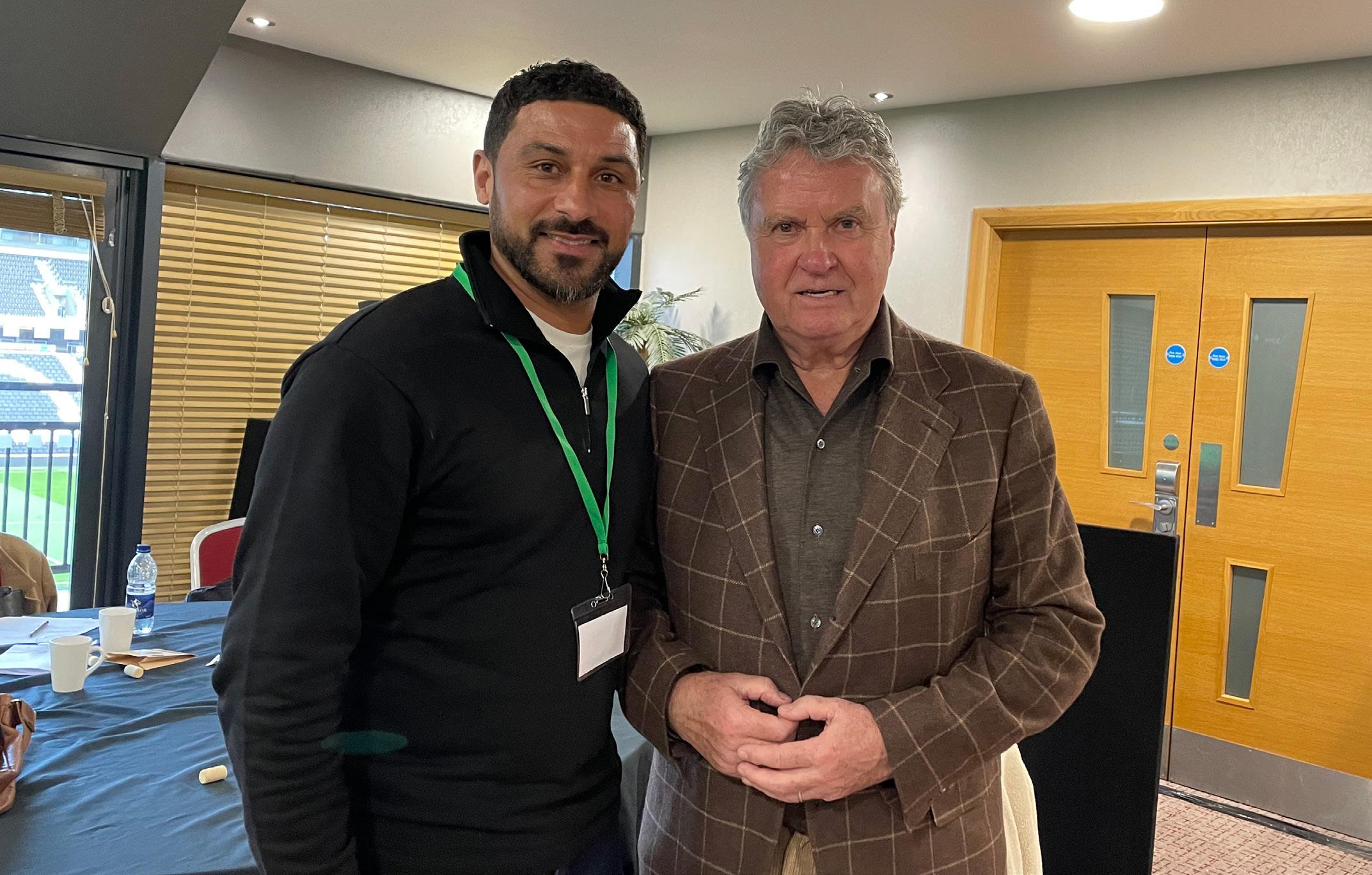 Hayden Mullins watches on as the players warm up for a Premier League fixture while Interim Manager at Watford FC. Reuters // Action Images
Hayden Mullins met with Guus Hiddink at the LMA Spring Forum, focused on Personal Development, at Stadium MK in March.
Hayden Mullins watches on as the players warm up for a Premier League fixture while Interim Manager at Watford FC. Reuters // Action Images
Hayden Mullins met with Guus Hiddink at the LMA Spring Forum, focused on Personal Development, at Stadium MK in March.
to somehow find a way to convey the right messages on behalf of the club and avoid being tripped up, because they were firing questions at me about the owner’s recent decisions and my feelings about taking on the interim role. When you are suddenly appointed first team manager you may not be fully prepared to deal with the media”
Mullins later reprieved his role as interim manager in July 2020, the season having restarted after a Covid-enforced break. The side faced impending relegation and, with only two games to effect a turnaround, it was something Mullins was unable to prevent.
“The role was both incredibly intense, and mentally and physically draining, but it was invaluable experience nevertheless,” he says. “Having been at Watford for four years in total, it was really valuable to get to understand the culture, the model and the style of football they were after. I owe a lot to the club, because I gained so much there. That kind of experience can’t help but shape you.”
Given his formative years at Watford, it was a difficult decision to leave the club in September 2020 to take up the Assistant Head Coach position at League Two side Colchester. He sensed that, with all the changes taking place at the time
at Watford, he might soon be returning to his role as U23 coach, and was keen to keep working in first team football. There were real advantages, too, to working in a lower league. “I’d had a taste of what coaching and management was like in the Premier League, where you have access to all the equipment and support you need, and I felt it was important to see the other side of the coin. What would it be like to work with a new group of players, with a limited budget, and to face a different set of challenges?”
It was a shrewd decision to make, one not based on quick gains, but on developing himself for the long term. “I loved every minute of it, because everyone’s in it together,” says Mullins, who after being promoted to Head Coach in March 2021 found his stride, guiding the team up to eighth in the league.
Sadly, Covid once again spoiled the party. “We were hit hard during the pandemic,” says Mullins. “I missed a game myself, and a number of players were out, especially over Christmas, which really stretched us as we didn’t have a big squad.” It was, however, an otherwise very happy period for Mullins, and when he was let go from the job after only eight months he was,
understandably, disappointed.
“It was the first time it had happened to me,” he says. “Our performances were actually pretty good, but we had a run of poor results that didn’t reflect that, so I understood the reasoning behind the decision.”
After leaving Colchester, Mullins went straight into some media punditry, and has since taken part in a number of courses to up-skill himself and ensure he is as prepared as he can be for his next role.
“Thanks to the LMA Institute events I’ve attended, I’ve had the chance to learn from the likes of Guus Hiddink and Mick McCarthy, to meet fellow managers and learn from their experience and to maintain contact with my peers,” he says. “You bump into people, you share nuggets of information, hear how they view things and help one another. It keeps you in the game, and your face and name front of mind, which is so important when you’re looking for new opportunities to learn and further your career. It was was good to have some time away after I left Colchester –it was only once I’d stopped working that I realised just how shattered I was - but you don’t want to get too comfortable. I’m now keen for the next opportunity to prove myself.”


 RAF fast-jet pilot Mandy Hickson poses in front of her aircraft before a flight. // Mandy Hickson
RAF fast-jet pilot Mandy Hickson poses in front of her aircraft before a flight. // Mandy Hickson
If you don’t have people willing to challenge processes and protocols you will never get change.
We all need role models. Mine came in the form of my grandpa, a WW2 pilot, whose stories inspired me as I grew up. I was 13 when the Air Cadets first opened their doors to girls, and I joined immediately. I flew, loved it and right there I had my goal, my purpose. I would become one of the very first female fast-jet pilots in the UK.
I faced many hurdles, first among them being the fact that women were not yet allowed to become pilots in the Air Force. What’s more, competition is fierce, with only one person out of every 3,000 applicants ending up in a fast-jet cockpit. At 17, I applied for a flying scholarship and was one of the first girls to get one. They told me straight away that I was obese and had to lose three stone, because the female height chart didn’t go any higher than 5ft8. I lost the weight. What do you do when you’ve chosen a goal with all these impossible challenges in the way? You just start chipping away at them. And just because something’s never been done, it doesn’t mean you should give up on your goal.
In my second year with the
University Air Squadron, a continuation of the Air Cadets, they changed the rules, allowing women to join the Air Force. It couldn’t have been better timed. I signed up immediately, but after three days of intensive training I failed the computerbased aptitude tests. You’re only allowed to take them twice so I waited a year before retaking them. I failed again. It was the end of the line for me. Except I had a champion. Sometimes you just need someone to believe in you and my boss couldn’t understand how someone who had proven themself to be a competent pilot couldn’t pass some competency tests. After much investigation he uncovered an unconscious bias against women that hadn’t been tested before. If you don’t have people willing to challenge processes and protocols you will never get change.
When, finally, I was given my branch change to pilot, I discovered they were only taking me on as a test case to see how far through the system someone with no aptitude could get before they failed. Rather than putting fire in my belly, this assumption that I would fail planted the seeds of doubt, what I now know to be imposter syndrome. Thereafter, every time I struggled I’d come back to the fact that I hadn’t passed
the tests, and that I was not good enough to be there. I still feel imposter syndrome today, even after everything I’ve achieved, but I’ve learned to deal with the negative voices.
When I was three trips away from passing a critical exam, I failed several flights and faced what they call a chop flight – fail and you’re out of the Air Force. I had tunnel vision, when you’re so focused on the task in hand that you keep doing it in exactly the same way, getting exactly the same results. I was so stressed I couldn’t eat or sleep. I had a rash all over my body. I did the worst thing you can do in that situation - I told no one and isolated, going through a full mental dress rehearsal of the next day. As the only woman on the course I didn’t want to hold my hand up and say ‘I’m struggling’.
It was my course mates who came to my rescue. They coaxed me outside and with the aid of their bikes helped me to practise the formations for the next day’s flight. It all fell into place and I passed. Their action was all the more incredible given that there were only so many places available and if I passed it would jeopardise their own careers. You have to be incredible and reliable to
do the job, but you also have to have intimacy and really understand your teammates. We’ve discovered this more and more over the last few years. Underpinning successful teams is always selflessness, going the extra mile at no gain to yourself. That’s why team is spelt the way it is, because together, everyone achieves more.
Early on in my time with the Air Force I took part in an exercise called Red Flag, where I was up against the very best pilots in the US. The philosophy over there was incredibly tough. The idea was that you should train harder than you would ever fight for real, because once you’d done it in training you’d never face it as tough in action, even with the added fear and pressure. However, with only four months of front line flying behind me I was out of my depth, so I was teamed up with a very senior navigator. Imagine having a mentor sitting two metres behind you at all times, advising,
guiding, enabling better quality decisions to be made together. My learning went vertical as a direct result of his input.
When most people think about the Air Force they think only about the pilots, however it takes much more to launch a plane. There are some 63 varied roles and responsibilities that contribute and I needed every one of those functions to be working smoothly like the cogs in a machine. If they had got it wrong I could have died, but I never doubted them.
To get the planes back across the ocean we had to do air-to-air refuelling, where you’re told not to look back, but to trust your navigator who is directing you. Heading to the US we hit a wall of cloud so thick I could barely see the aircraft next to me. Two hours in, my shoulders hunched, tears pouring down my face because I’m not blinking, we heard a radio message that the US had just shut their entire
airspace. We couldn’t even process the information – we had never known a whole continent to shut down - but we stayed calm. You are taught in the military to control the controllables, and if you can’t control it let it go. It’s a mantra that’s kept me alive at 30,000 feet and sane on the ground for the last 30 years.
I was posted out to Iraq, where I was the only woman, and it was one of the most challenging periods of my life. One memorable night, a serious situation arose whereby I had to lead my first ever combat mission. I was the most junior member of my team, but every decision rested with me. I learned more about myself on that night than at any other point in my service career, because rather than stepping in and taking control my boss empowered me to lead. When you give people accountability and a voice at an early stage of their careers it creates leadership growth from the bottom up.
When you give people accountability and a voice at an early stage of their careers it creates leadership growth from the bottom up.



FROM ANOTHER SPORT:
When the world’s greatest golfers descend upon St Andrews in July for the 150th Open Championship it will be a battle not only of technical prowess but of mental strength.

Brian Hemmings made his name honing the mental skills of many of England’s finest golfers and over the years has worked with numerous European tour players, Ryder Cup players and major winners. He has also spent significant time with England’s emerging golfers, supporting their transition into professionals playing on the global circuit.
Hemmings has 30 years’ experience working not just in professional golf, but also cricket, boxing and motor racing, four sports that couldn’t be more different. However the core psychology, he says, is the same – recognise that outcomes and results are out of your hands, and focus on what you can directly control, your own process and performance.
There are, nevertheless, certain qualities that make golf stand apart from other sports in terms of psychology, and they go some way to explaining why there are more books written on the subject than for any other sport.
First among these factors is the solitary nature of golf – you play for yourself, on your own, in a manner that is entirely non-contact and non-interactive with your other competitors. “When you’re out on the course, the performance of your fellow golfers is completely out of your control and influence,” says
Hemmings. “They can’t outrun you or tackle the ball off you, so the only way they can possibly interfere with your game is if you allow them into your head.”
Then there’s the fact that, while a golfer might be out on the course for some four hours, they will actually be hitting the ball for only about 20 minutes of that. That’s an awful lot of time to think – time to picture the victory in your sights, time to catastrophise, time to lose focus or lose heart following an error, and time to overthink your skill execution.
Hemmings explains: “Often when golfers aren’t playing well they start to internalise things and overthink their technique in a way that doesn’t happen so much in faster-paced, interactive sports. This can lead to skill breakdown, where the golfer starts to give themselves verbal commands for how to operate, just as they might have done when they were a beginner. You sometimes see extremes of this behaviour in golf where the player can’t even move the club away from the ball. They’re thinking so much about every movement that they can’t actually execute the skill at all, and these are players with maybe 30 years’ experience behind them.”
In other words, while having long periods of reflection might
When you’re out on the course, the performance of your fellow golfers is completely out of your control and influence. They can’t outrun you or tackle the ball off you, so the only way they can possibly interfere with your game is if you allow them into your head.
seem like a luxury to an athlete whose sport requires them to react in the moment and make split-second decisions, time can also be your worst enemy.
Whereas a footballer or rugby player needs a ‘pre-shot’ mental routine only when play stops for a free kick or a penalty, a golfer has to maintain that acute concentration for every shot over the duration of the competition.
“Tournament golf might be played over four days, but when you add in travel and practice days, professionals are effectively performing for seven days on a trot,” says Hemmings. “Given
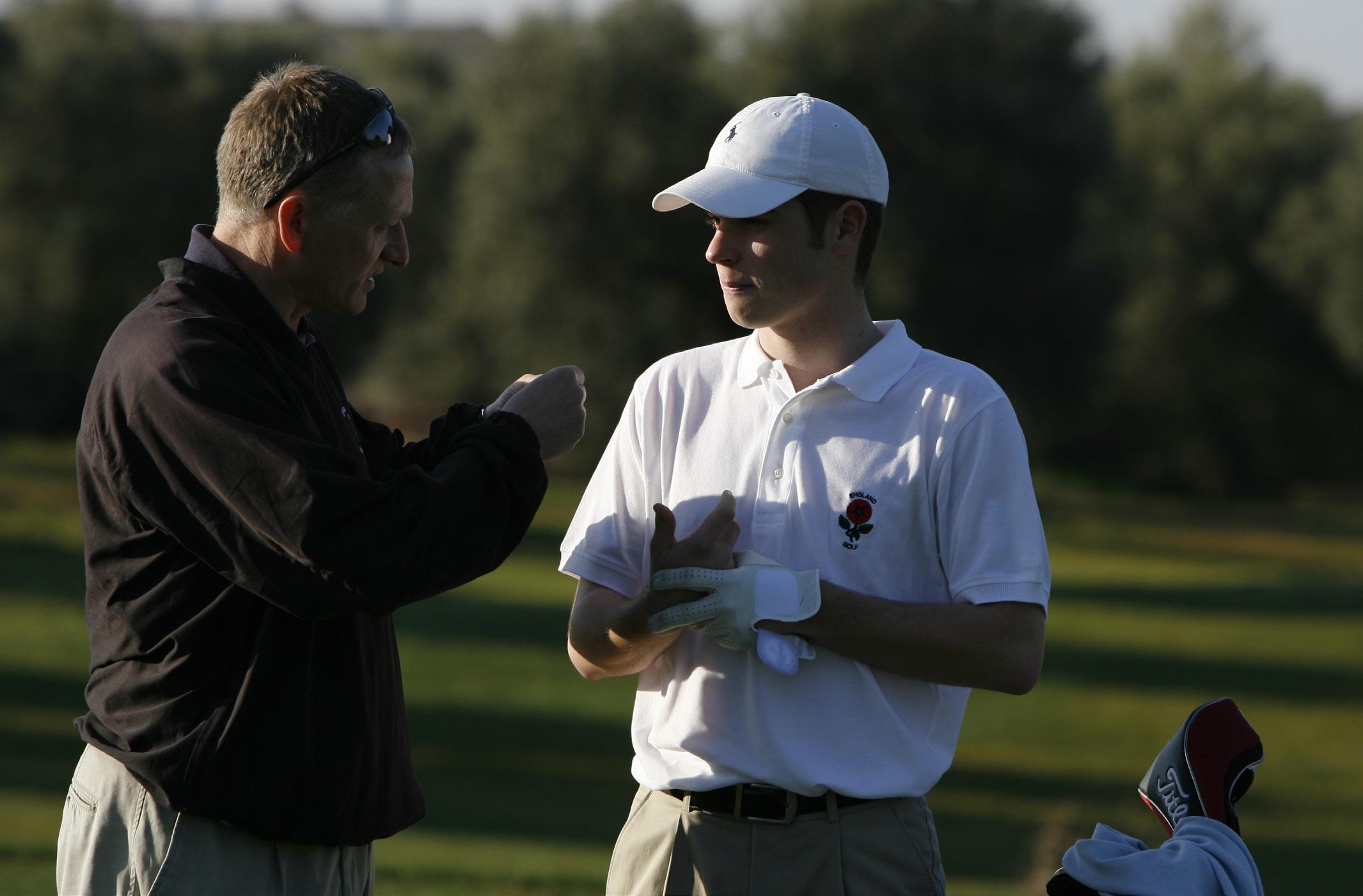
that every stroke counts in golf, and there can be just one shot in it right to the end, golfers have to maintain absolute focus from start to finish. That’s extremely demanding, both physically and mentally.”
It means that, just like in any sport, professional golfers need rest and recuperation if they’re to keep performing at their best without succumbing to the punishing demands of elite level competition. Early in Hemmings’ career the widely held view was somewhat different, asserting that to maintain peak performance you had to play all the time or risk getting rusty.
“It was Tiger Woods who broke the mould, saying he would only play a limited number of competitions each year,” says Hemmings. “Everyone soon followed suit, playing fewer tournaments and focusing on the majors.”
The risks of competing in a succession of events with no break don’t only relate to physical and mental burnout.
“Golfers will sometimes speak of a staleness,” says Hemmings. “The game defeats them because they lose the frustration tolerance that they had and feel almost as though they can’t compete anymore. Most now work out their own
Most of the change and impact is achieved not through expert approach or the way you do it, but from the relationship you develop with the individual.
Progression is never linear. Rather, there are microcycles of failure and success.

schedules, where they compete for a maximum of three-to-five weeks at a time, because they’ve learned from experience how long they can play for before their performance starts to drop off.”
Beyond that period there’s little point going to a tournament – there’s less chance they’ll be successful, and attending could cost them more than their professional reputation.
“Golfers don’t get paid a salary like in other sports,” explains Hemmings, “so while some will get sponsorship and appearance money, most invest in themselves and each tournament that they enter costs them. If they overstretch themselves, underperform or, worse, get injured, they won’t get paid and could actually end up out of pocket.”
When Hemmings works with a player, he begins by making a thorough evaluation of their performance, breaking their game down into its constituent parts and getting them to self-assess – where are they strong and where do they need to improve? Perhaps most importantly, he says, that triggers communication.
“Research suggests that while the content of what you’re providing as a psychologist is
really important, most of the change and impact is achieved not through expert approach or the way you do it, but from the relationship you develop with the individual. What’s more, they simply won’t listen to and engage with what you’re telling them if you don’t have a trust and rapport.”
His work with golfers is therefore bespoke and one-to-one. Everyone has their own best way of thinking and behaving, so there is no single mantra or standard method. Instead, each player will develop their own personal pre-shot routine that enables them to put the last shot behind them, get into the moment and refocus.
“What you’re trying to achieve is an external focus of attention,” says Hemmings, “so you might ground the feet to plant yourself in the present moment, and use your vision to guide your behaviour. There’s a technique called quiet eye, for example, where what you focus on and for how long has been shown to significantly improve performance.”
Another important thread to Hemmings’ work is helping golfers to move on from disappointment or failure, the latter being a word he neither likes nor feels has any real meaning.
“You have to help people reinterpret failure, because it’s a very absolute way of thinking, which is totally dependent on personal perceptions,” he says. “If you didn’t perform well I’d argue that you haven’t failed, you just haven’t performed well. Indeed top golfers would say that failure, in the sense that you haven’t achieved what you wanted to, is simply part of development. You have to lose sometimes in order to learn, so rather than being something to be afraid of, losing or ‘failing’ should be seen as important and valuable.”
Progression, he points out, is never linear. Rather, there are microcycles of failure and success. What’s important is being able to learn from an event and then leave it behind you.
“A young player I was coaching once said to me, ‘a setback is only a setback if you let it set you back’. He was right. If you focus on the moment and on what you’re going to do next then what just happened is history.”
For more information on Brian Hemmings’ work visit
www.golfmind.co.uk
www.bjhconsulting.co.uk
Bob Rotella has helped many players negotiate their way round the world’s most difficult courses. Here at Pebble Beach, he helped Tom Kite on his way to US Open glory in 1992, which he described as “the best example of patience he has ever witnessed.”
Reuters // Action Images

Interview: Jim Souter
Words: Alice Hoey
Photography: Reuters // Action Images
FROM ANOTHER SPORT:
BOB
When the world’s greatest golfers descend upon St Andrews in July for the 150th Open Championship it will be a battle not only of technical prowess but of mental strength.

Psychology for 21 years at the University of Virginia, Rotella has also helped more than 100 companies, professional athletes and coaches in the NBA, NFL, NCAA and Major League Baseball raise their game through improved mental performance. Here, he talks to Jim Souter about why selfbelief and self-confidence are at the heart of elite performance, whatever the sport.
Without a doubt, my greatest asset is that I can see talent in people that they didn’t know they had and then bring out the best in them. At college, I was captain of the basketball and American football teams. However I spent the summer teaching swimming to kids with mental and physical disabilities and they had the best attitudes of anyone I’d come across in sport. It was interesting just how much I was able to achieve with them, because I had no prior expectations of what they were or weren’t capable of and I put no limits on them. If I told them they were capable of achieving something, they believed it and they did it.
It’s amazing how many people
choose not to, how many say they wish they had a coach who believed in them more. To be the best, you have to believe in yourself long before the rest of the world believes in you. That self-belief is what coaches really want. We talk a lot about hard work and dedication, and of course they are essential if you’re to develop the skills you need to perform, but actually to deliver your best on game day requires total self-belief.
I’ll tell people, I don’t care if you’re cocky, arrogant or egotistical, if your dream is to win the world championship then your confidence has to match that, at least on game day. If you want to be great, then when you step out onto that field you have to believe that you’re the best thing on earth. When you leave it at the end of the day, though, regardless of whether you’re the world champion, you have to know that you’re no more important than anyone else. That’s the perspective we’re after and it’s not an easy thing to achieve.
I tell my golfers, you’re going to make mistakes, so are the others. The difference is you’re going to accept them and deal with them better than everyone else. You’re going to keep on playing and not beat yourself up over


Rory McIlroy is among the players on the PGA Tour that Bob Rotella has worked with in recent years.
Reuters // Action Images

it. As coaches, we don’t need to yell at them when they’ve make a mistake; we knew it was going to happen and they certainly didn’t do it on purpose. I’m an advocate of hard coaching and I want coaches to really push their players, but not on game day. On game day there’s nothing more you can do except be their biggest cheerleaders.
In basketball, we have shooting drills where the players have to make so many shots from so many spots in so many minutes, and we chart every single effort. It means that when a player comes to us asking to shoot from further away we can show them why they’re not ready. Having this kind of evidence is also useful when dealing with parents, because you’re constantly trying to counter the view that somehow you don’t like their kid and aren’t giving them what they’re due. Stats enable you to show them that it’s not subjective. It doesn’t matter to us whether we like them or not so long as they can help us win.
If as an athlete you’re all about you then it’s a problem, because
however great you are you’re never going to succeed on your own. You’re not a good team player unless you’re doing something every single day that helps your team mates feel good about themselves and play better. If you can do that then, ultimately, you’ll help yourself.
When I talk to coaches, I always emphasise the need to big up the benchwarmers, the guys who don’t get so much attention, but who play a vital role in the success of the team. If the coach, or better still the star players, give credit to those people publicly it’s very powerful. The first meeting I held when working with American football side The Eagles I got everyone together, not just the key staff and players, but the secretaries, the guys who answered the phone, and the equipment room people. I wanted everyone to know that we valued their individual role and, importantly, I wanted the players to see that.
Whatever your role in the team, you have to do it better than anyone’s ever done it before. We spend a lot of time getting
people to buy into that idea, to ask what it takes to master their role and who has filled it before that they can look up to. We’ll show them videos of those role models, and even get them to talk to them where possible. They need to enjoy playing their role rather than fighting against it. They need to understand that they might have a different part to play in the future, perhaps one that’s closer to what they’d hoped for, but at this point in time this is how they can help the team most.
AT THE START OF
SEASON EVERYONE’S TALKING ABOUT HOW THEY’RE GOING TO WIN The question is, who can sustain that kind of positive talk for the entire year? By about the seventh week most teams will have given up on it and instead will have resorted to blaming one another to protect their own egos. The players will be complaining that they’d be doing better if they had a better coach. The coaches will be talking about how they’d be doing better if they had better players. The general manager will be saying that neither his coaches nor his players are good enough. The best teams, however, continue to believe in themselves as a team and when they lose games it only makes them more cohesive.
Whatever your role in the team, you have to do it better than anyone’s ever done it before.



The LMA hosted the Castrol Dream Team Tournament at St. George’s Park at the end of May, after the conclusion of the 2021/22 Premier League season. Eight teams participated in the football tournament managed by LMA Ambassadors Kelly Chambers, Quinton Fortune, Emile Heskey, Ian Holloway, Chris Hughton, Harry Kewell, Jody Morris and Kelly Smith MBE. The tournament was followed by a dinner and a Q&A, hosted by Sky Sports presenter Hayley McQueen, with LMA Ambassador Andy Cole and LMA Executive Committee Member Roberto Martínez.



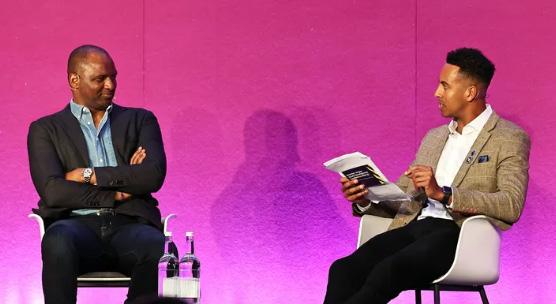

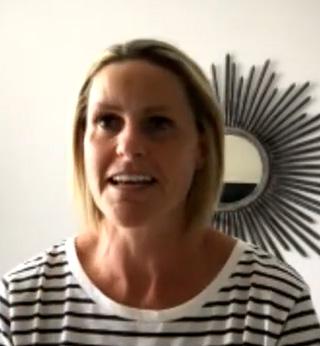


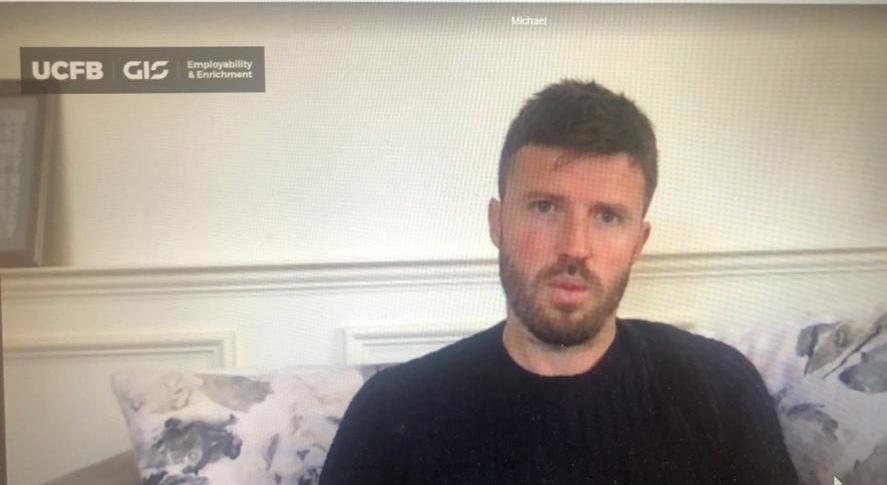 02 LMA Ambassador Michael Carrick took part in an online webinar Q&A for UCFB students and alumni.
03 LMA Ambassadors Aidy Boothroyd, Phil Brown, Keith Curle, David Dunn, Quinton Fortune, Ian Holloway, Alan Irvine, Fabrice Muamba, Garry Monk, Hayden Mullins, Matthew Taylor and Paul Williams supported the Tarmac Football Tournament at St. George’s Park. LMA member Martin
O’Neill OBE then joined the guests for dinner and took part in a Q&A hosted by Gail Emms MBE
04 LMA Ambassadors Rehanne Skinner and Vicky Jepson took part in a Nike appearance supporting the Level 7 Academy Powerhouse Project.
05 LMA Ambassador Harry Redknapp took part in an appearance at London Stansted Airport for Cadbury.
06 LMA Ambassador Kelly Smith MBE took part in an online Q&A for Vitality.
07 Steve Johnson hosted a lifestyle medicine virtual masterclass, concluding the Castrol Global marketing senior leaders personal development programme.
02 LMA Ambassador Michael Carrick took part in an online webinar Q&A for UCFB students and alumni.
03 LMA Ambassadors Aidy Boothroyd, Phil Brown, Keith Curle, David Dunn, Quinton Fortune, Ian Holloway, Alan Irvine, Fabrice Muamba, Garry Monk, Hayden Mullins, Matthew Taylor and Paul Williams supported the Tarmac Football Tournament at St. George’s Park. LMA member Martin
O’Neill OBE then joined the guests for dinner and took part in a Q&A hosted by Gail Emms MBE
04 LMA Ambassadors Rehanne Skinner and Vicky Jepson took part in a Nike appearance supporting the Level 7 Academy Powerhouse Project.
05 LMA Ambassador Harry Redknapp took part in an appearance at London Stansted Airport for Cadbury.
06 LMA Ambassador Kelly Smith MBE took part in an online Q&A for Vitality.
07 Steve Johnson hosted a lifestyle medicine virtual masterclass, concluding the Castrol Global marketing senior leaders personal development programme.

01 LMA Spring Forum
The LMA hosted its Spring Forum, focused on Personal Development, at Stadium MK in March.
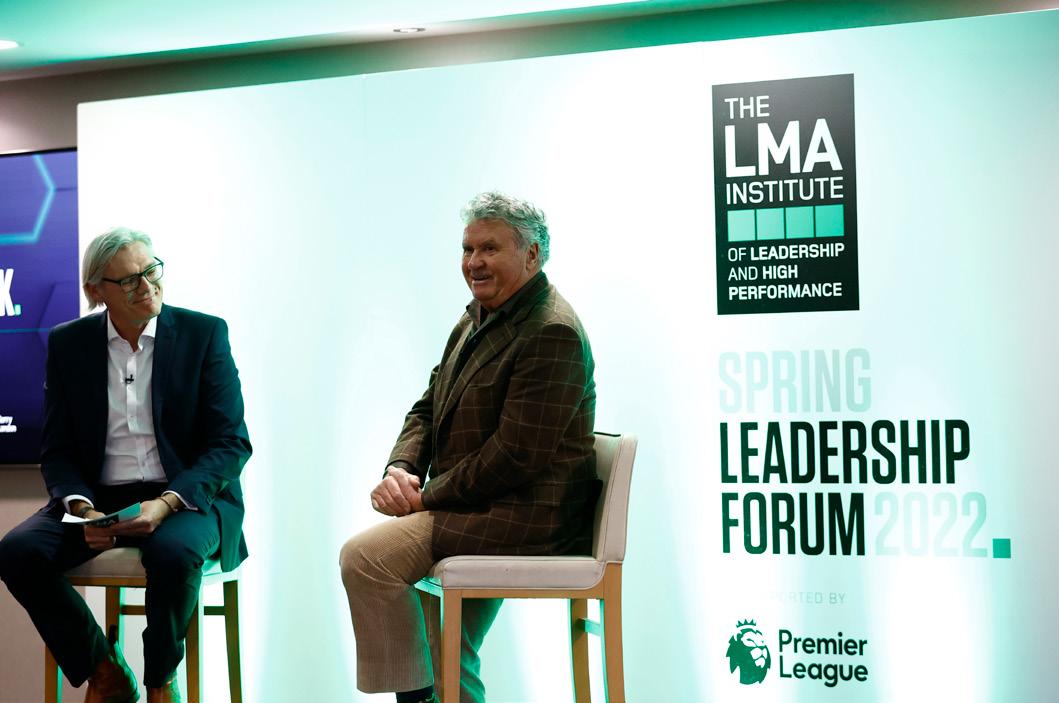
The event, a day of networking and learning for LMA members, featured a Q&A with LMA member Guus Hiddink, as well as sessions by Jeremy Snape, Dr Peter Olusoga and Lisa Åkesson, exploring how to Build a Successful Career in Management and Coaching.
The LMA Spring Conference took place at the National Gallery, London, in April. LMA members and Corporate Partners heard from experts in their field as they
delivered a series of leadership and performance talks. Leadership expert René Carayol MBE hosted the session, which included keynote presentations from Mark Beaumont, Mandy Hickson and Dr Jessamy Hibberd.
To close, Chelsea FC Women Manager and LMA Committee member Emma Hayes OBE took part in an honest and insightful Q&A session.

03 LMA Performance Visit: The Red Arrows
LMA members spent a day at RAF Scampton, where they watched a presentation from the Commanding Officer and observed a Red Arrows
flying practice, including briefing and feedback.
04 Dr Chris Shambrook hosted an LMA Masterclass at The Etihad Stadium exploring ‘The Manager as a Performer’. The masterclass covered defining success, performance obsession and leading by example.

05 LMA Performance Visit: Sale Sharks
LMA members visited Rugby Union team Sale Sharks for a special performance visit ahead of their Heineken Championships Cup final match against Bristol Bears, learning from Director of Rugby Alex Sanderson and his coaching team.




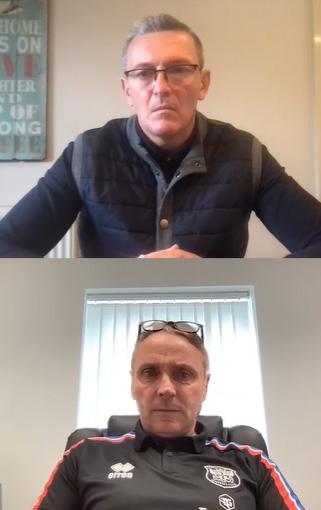

01. Women’s Football
The LMA’s fifth Technical Performance Clinic of the season took place at St. George’s Park, with presentations from Tom Goodall (LMA Partner Hudl), Sophie Bone (London City Lionesses) and LMA member Shelley Kerr MBE. The presentations were followed by a practical coaching demonstration from LMA member Willie Kirk.
02. Managing Expectations
Mark Clemmit hosted a session, joined by three expert panellists: Garry Monk, Hope Powell CBE and Mike Rigg.
03. Team Culture
Mark Clemmit hosted this online session, which featured three LMA members: Aidy Boothroyd, Karen Hills and Paul Simpson
 LMA Technical Performance Clinic
LMA Technical Panels
LMA Technical Performance Clinic
LMA Technical Panels
LMA launches phase two of its partnership with Mayor Andy Burnham to launch a new suicide awareness video on BBC Breakfast television
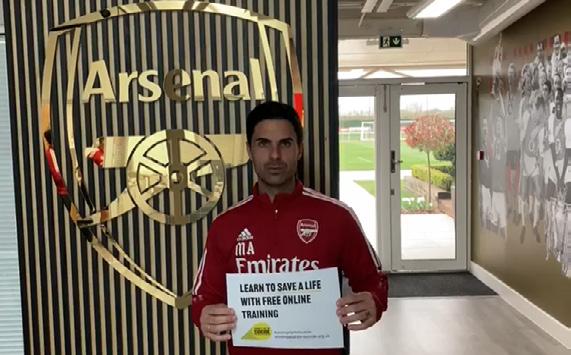


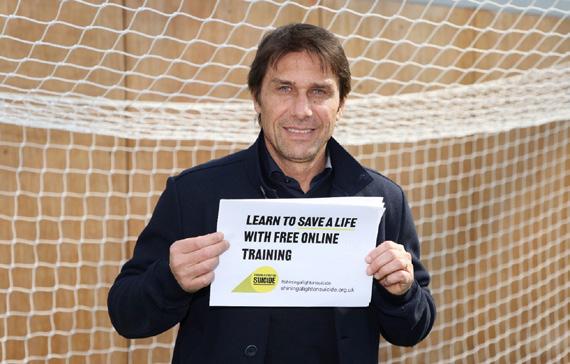



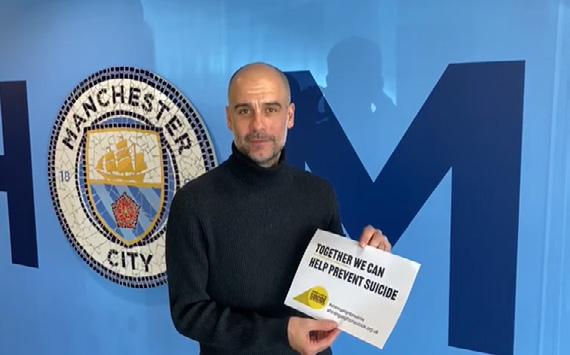
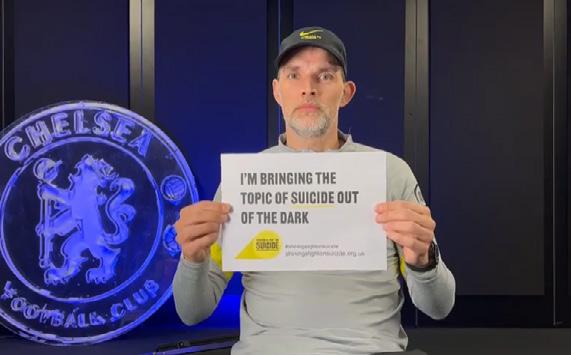





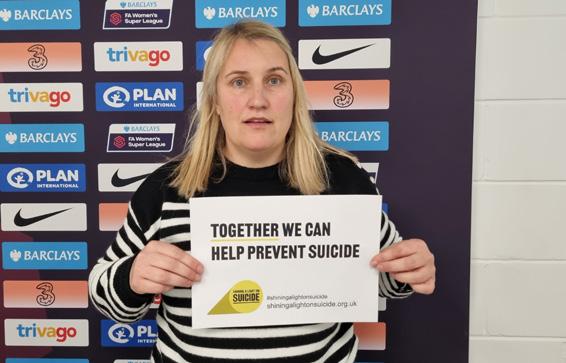

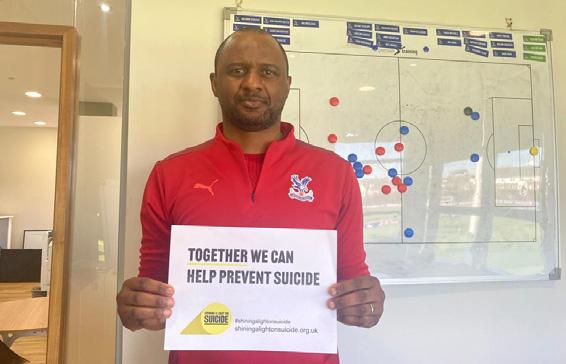


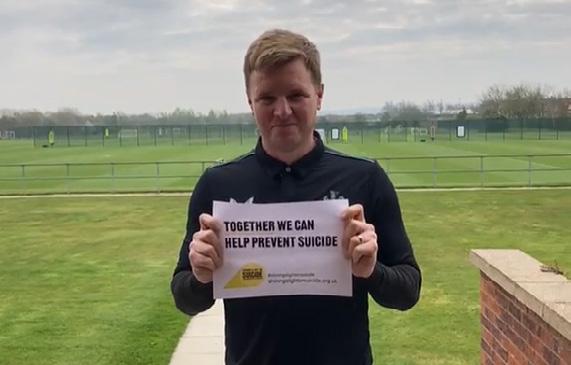
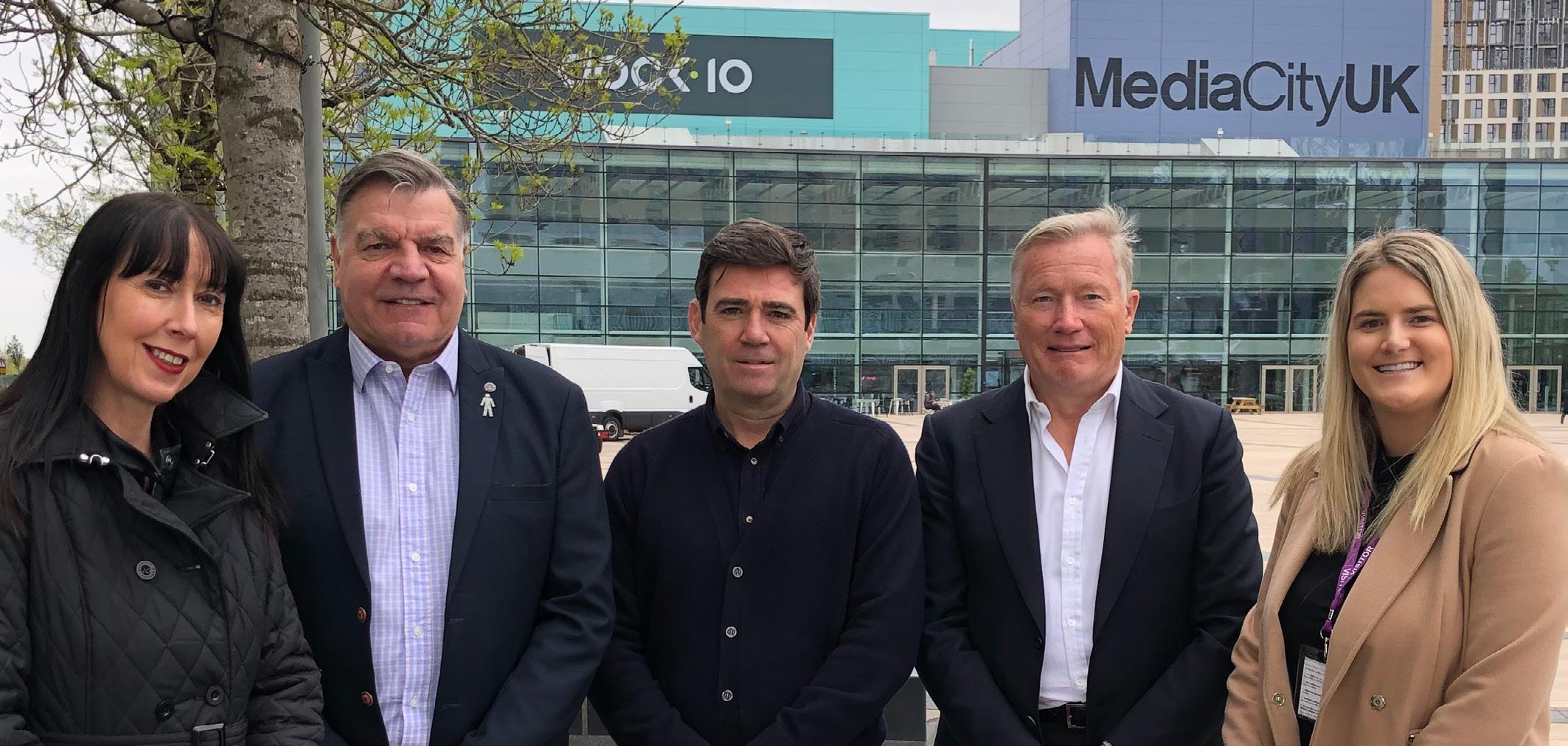
LMA
film
The film hopes to use the managers’ influence and reach to raise awareness of a free online suicide prevention training course, which nearly two million people across the country have taken so far.
The 20-minute Zero Suicide Alliance training course helps participants to recognise the warning signs that someone may be thinking about suicide, understand how to ask them if they are thinking about
suicide and help them access appropriate support.
The training is a crucial part of the Shining a Light on Suicide campaign, run by Greater Manchester Health and Social Care Partnership and supported by the Mayor and LMA since 2021. The award-winning campaign works to bring the word suicide out of the dark, so that everyone can confidently start open and honest conversations about suicide and
suicidal feelings.
Suicidal thoughts are more common than many people realise, with suicide being the biggest killer of men under 49 and women aged 20 to 34. Research shows that using the word ‘suicide’ appropriately signals to the other person that it is ok to talk about any suicidal feelings they may be having and that you are there to listen.


We help teams across the UK to protect their players and young athletes from harm and safeguard their wellbeing. We support our customers, from grassroots clubs and charitable foundations to premier league teams, with world-class solutions for the management of safeguarding and safer recruitment.

Talk to us about how we can support your team.
thesafeguardingcompany.com/sport
For the secure, recording and management of all safeguarding and wellbeing concerns.
FOR EVERYONE, EVERYWHERE.
Enables safer recruitment of those working with children and in sensitive roles.
Managing concerns about staff, coaches and volunteers, confidentially and effectively.
While perfecting your ideas is necessary, how you deliver them is even more important. From the moment you walk into a room or switch on your webcam, you are influencing others.
When you enter a room, ensure your posture is lengthened. Imagine your spine is pulled upwards from your tailbone to the top of your head like a puppet on a string. Even if you’re sitting down your string can pull you upwards, allowing your shoulders to widen and preventing you from slouching.
Stand or sit with your feet hipwidth apart so you are rooted and balanced. Too close together and you will appear small and off-balance, too far apart and you may come across as if you are taking too much space or even invading someone else’s.
Lisa Åkesson Empowered SpeakingWe make first impressions quickly. Indeed, Princeton University psychologist Alex Todorov showed through brain scans that it takes only a tenth of a second for someone to decide if they think you are trustworthy, likeable or confident.
When you speak, use gestures. Many people don’t know what to do with their hands, but we all use gestures in our natural speech. Ensure that your hands are mid-plane so they energise what you say and help people connect more fully with you.
Give others eye contact so they feel you are connecting with them and they matter. It suggests confidence. When communicating virtually that will mean looking into the camera rather than at the other people or yourself.
Speak with enough energy and volume to project your personality and land your message, being careful not to mumble or over-project, as people may feel overwhelmed by your presence. If you sound monotonous people will switch off, so be brave and play with
your pitch range, allowing your voice to reflect the words you are saying. Vocal variety alerts people to the myriad of thoughts you share and makes your message sound interesting and memorable. It’s easy to speak too quickly when nervous, but it’s important to slow your pace down, breathe and take a pause between each thought so that people can take it in and digest it.
Impactful leaders understand how to use their bodies and voices to deliver their messages, and that starts with selfawareness and practice.
An Executive Coach from Henley Business School, Master Practitioner of NLP and a qualified Psychometrician, Lisa has spent over 25 years in the business world as a voice and presentation skills expert. For more information visit lisaakesson.com

Words: Alice Hoey
Photography: Action Images
From self-guided e-learning to masterclasses and podcasts, there have never been so many ways to upskill and re-skill. Alice Hoey asks how we can make the most of CPD opportunities.
With step changes in performance few and far between, the goal for managers is constant incremental improvement, best achieved through a carefully tailored programme of training and support. But while we tend to speak in these terms about developing our athletes and top performers, the same is true for us as leaders and managers. To develop our skills and knowledge, and to work better and smarter in our jobs, we need to be looking constantly for any and every opportunity to learn and grow.
This takes more than experiential learning. While we soak up information with every new challenge and encounter we face, to truly move a career forward or take it successfully in a new direction requires something else - Continuous Professional Development (CPD).
CPD is not passive or ad hoc; it is proactive, intentional and strategic. It is a conscious commitment to enhancing skills and proficiency by taking advantage of a range of methodologies to learning and improvement.
How can we do that? Well, in some industries CPD is provided in some form or other by the employer, but more often than not it is the trade associations or
wider industry bodies where the real magic happens. As well as providing opportunities to access high-quality content, these organisations tend to facilitate peers within and outside of the industry to come together, learn together and share their knowledge and experience.
As for you as an individual, the advantages of CPD are considerable and can have a deep and long-lasting impact on your career success and progression. Continuous learning helps to ensure that, as the field in which you’re operating evolves, any training and qualifications you’ve achieved don’t become dated or even irrelevant.
It enables you to up-skill, where you add new competences and knowledge that will help you excel in your current role, as well as potentially re-skill, where you equip yourself to move across to a new role or take your career in a new direction altogether.
Whether or not your organisation provides any structured CPD, therefore, it’s essential that you are proactive, dynamic and forward thinking about your personal and professional development.
Under the umbrella term of CPD sits a wide range of opportunities and methods
of learning, one that has become ever broader and more accessible over the years thanks to technology. As well as face-to-face one-to-one lessons, group training, workshops, masterclasses, conferences and courses, there are traditional printed media, online learning platforms, newsfeeds, podcasts and other remote tools that can be accessed on your own and fitted in around other engagements.
With many of these activities the opportunities for learning go beyond the content delivered by speakers and course leaders. The value of peripheral activities such as coffee breaks and post-event drinks should not be underestimated. As well as learning from the experience of your peers, you have the opportunity to extend your contacts book, which can prove invaluable in both furthering your career and opening doors to more professional development further down the line.
It’s important also not to underestimate the value of social connectedness, especially if you’re in between roles. Taking an active part in industry events, having a voice and a willingness to network with your peers sends a strong message, builds self-confidence and helps keep your name front of mind among peers and potential employers.
To network strategically, try to identify in advance who among the speakers and attendees it might be useful to meet and be confident in introducing yourself. Interesting talking points from the previous session can make useful conversation starters.
To ensure that you make best use of your time, it’s important that any CPD activities you undertake are relevant and will actually help you to achieve your professional ambitions. They therefore need to be structured and planned. It’s a good idea to follow what is known as the CPD cycle, essentially a plan-doreview process, which starts with identifying your individual needs.
A self-assessment or needs analysis may be helpful in identifying any gaps that exist in your current skills or knowledge base, as well as any areas where it might be particularly beneficial to improve. This could be because of specific trends or projections in your industry or down to more personal drivers, such as a desire to take your career in a new direction or a growing interest in one area of your work.
Once you’ve honed in on those objectives, it’s time to plan exactly how you might achieve them. Which specific courses might you join, who in your contacts book might it be
useful to approach and which upcoming events should you sign up to?
The next step in the CPD cycle is to carry out your plans, doing those activities that you identified as most likely to help you achieve your learning objectives, without wandering astray or becoming distracted. There’s a huge range of opportunities to learn available, but it’s important to be selective as not all of it will be relevant, nor will it move you closer to your aims. It’s natural also to want to complement or adapt your CPD plan as you put it into action, and to repeat certain activities that you enjoy or feel are relevant. However, it’s
essential that you always keep your learning objectives front of mind and use your time and energy wisely.
Finally, it’s important to reflect regularly on how all the professional development that you’ve engaged with has gone and how successfully it has helped to move you towards your goals. What specific new skills and knowledge have you acquired, who did you meet and what did you learn from them? Who else might you benefit from seeking out or following up with? Perhaps most importantly, how might you use what you’ve learned in your day-to-day work or as you make your next career move?
There’s a huge range of opportunities to learn available, but it’s important to be selective as not all of it will be relevant, nor will it move you closer to your aims.
This constant check in is essential, as without it it’s easy to lose momentum, get stuck in a rut, or end up repeating similar activities over again. Remind yourself of the aims you stated in your CPD plan and of your personal reasons for wanting to work towards that. The best progress tends to come when we have strong intrinsic motivations rather than when they are based on external pressures or expectations.


Keeping a written CPD log or portfolio can be especially useful in this process of reflection. Noting down the details of a workshop that you attended and your key takeaway points,
for example, helps to crystallise them in your head and gives you something more solid to look back on. When you think in ink it also increases the likelihood that you’ll turn what you heard at a personal development event or on a course into action, which ultimately is the whole point. Having a written record of CPD activity is also important evidence to a potential employer of your proactivity and thirst for knowledge and self-improvement. Some people log every hour or unit of CPD carried out, and indeed this recording of workbased learning is the norm in some businesses. However, even if you keep a less formal CPD log-book it can be a great tool to
monitor your progress. What’s more, if you notice your portfolio is collecting dust on the shelf you know it’s time to get back on track with your CPD plan and seek out some new opportunities to learn and improve.
Everyone’s personal learning journey is different, but one thing that is common to them all is that there really is no end point. If you succeed in meeting the goals of your CPD plan, it’s time to start the cycle over again with a new objective in sight. As your career progresses or faces setbacks, and as the industry evolves, there is always something more to reach for. Constant small improvements can lead to something incredible.
1
Aimed at improving strength and endurance, resistance training is often facilitated by specialist equipment, normally involving the lifting or pulling of weights. However, many strength training exercises require no kit at all.
Callisthenics exercises in particular tend to require no equipment, relying more on the individual’s own body weight to cause resistance and work large muscle groups. Repeated movements, such as pulling, pushing, bending, jumping or swinging, help to provide muscular and aerobic conditioning, and improve balance, agility and coordination.
The second of the three main groups of resistance training, isometric exercises involve holding the body in one position so that the muscles are contracted but not lengthened. These exercises involve presses, pulls or holds and many, such as the wall sit, plank and low squat, can be performed anywhere.
The third main group of resistance exercises involve exerting maximum force for short periods, moving from muscle extension to contraction quickly. Otherwise known as jump training, these exercises are most commonly used by athletes to improve specific areas of performance.
While normally an anaerobic activity, resistance training can improve overall fitness, increasing your muscle-to-fat ratio, raising your metabolism, helping you lose or maintain weight, and improving your cardiac health. Strength training has also been linked to better self-confidence and mood.
Lean muscle mass diminishes with age, so it’s important to work at preserving and enhancing it. Resistance training strengthens not only the muscles, but also the tendons, ligaments and bones, improving flexibility and balance, and reducing your chance of injury in later life.
While different resistance training exercises may be combined in circuit training to provide an all-body workout, each individual exercise targets specific muscle groups. By increasing the workload of these muscles progressively, they grow and adapt. Levels of lactic acid, which limits training, are slower to rise, enabling you to train for longer.
Cold muscles are more prone to injury, so it’s important to warm them up with light aerobic activity before strength training. Choose a weight or resistance level that enables you to do 12-to-15 repetitions successively before you have to stop. If you can handle more without tiring, increase the load.
Aim to train all the major muscle groups, as if one or more are weaker than the rest you’re more prone to injury. It’s important to alternate between the muscle groups to enable them to get a full day’s rest between exercises.
Effective and safe resistance training is all about getting the technique right, so it’s a good idea to work with a professional, at least initially. If an exercise causes pain at any time, switch to a lighter load or stop working out completely and rest your muscles for a day or so.
Speaking at the recent LMA Spring Forum, Chartered Psychologist and Sport Psychology Consultant Dr Peter Olusoga explained why selfcare is the forgotten performance strategy.

Is stress inevitable? To answer that, it’s important to understand what stress really is. Stress is, in essence, the balance between the demands that are placed on us in our day-to-day lives and how well we believe we can deal with them.
These demands can be organisational things, like conflict at work or budgetary concerns, they can be competitive demands, such as an issue with a team member or the nature of the competition environment itself, or they can be personal demands, such as feeling isolated or having to sacrifice your free time because of work commitments. It is when these demands start to pile up or we feel less able to cope with them that
we experience stress, and we respond to that stress in a number of ways. We may experience the stress emotionally, by getting angry or upset, behaviourally, perhaps pacing up and down or exercising more, or physiologically, the heart rate increases, we sweat more, and so on.
The job of a manager in a high-performance environment is, of course, full of the types of demands that tend to lead to stress. There are the long irregular hours and the physical and mental isolation, the tendency to prioritise other people’s wellbeing over self-care, the lack of job security, and the impossibility of real work-life balance.
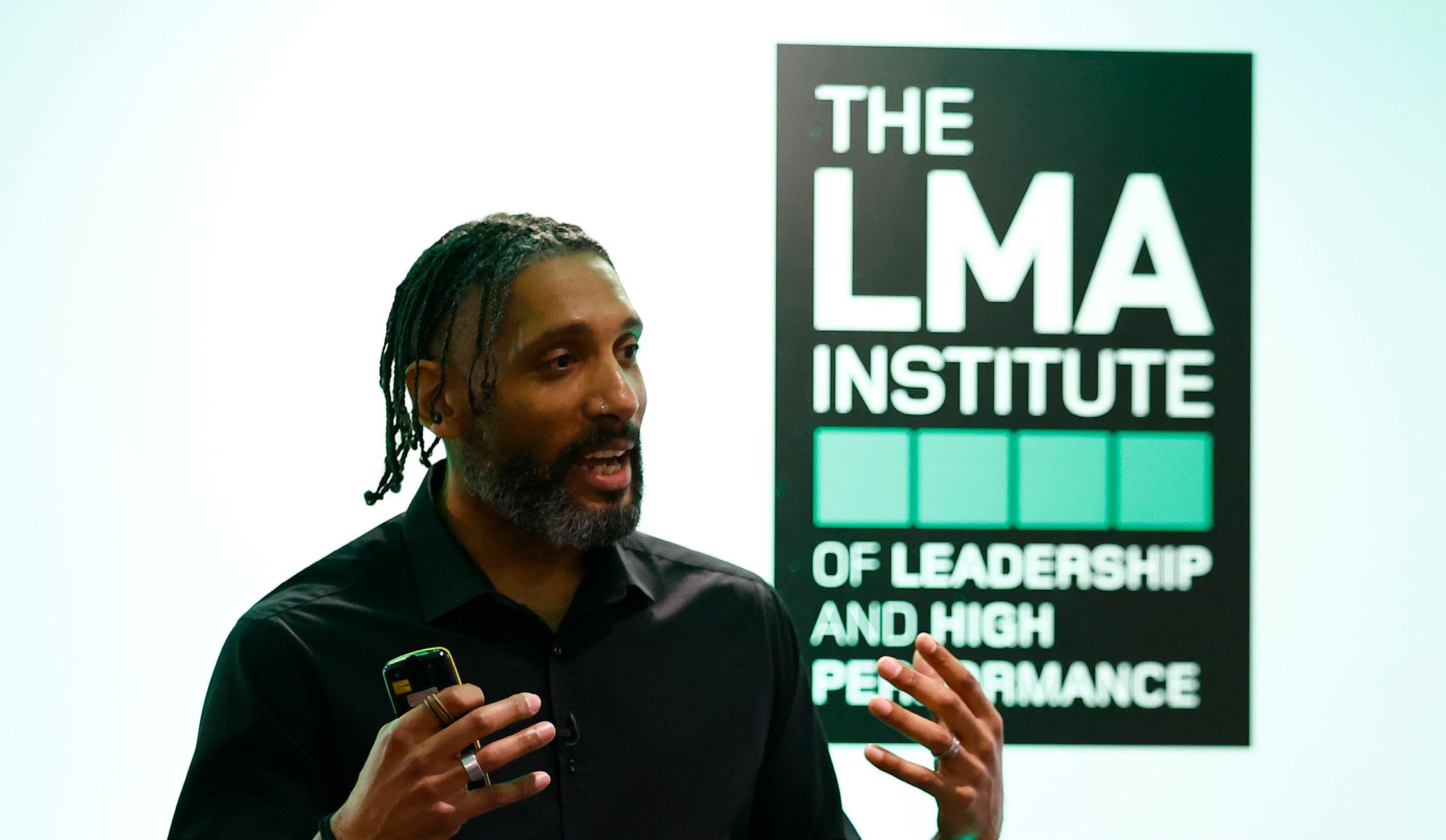
What’s more, in some highperformance cultures, sport among them, toughness, grit and strength are seen as particularly positive characteristics, making it difficult for people to show vulnerability to stress and to reach out for the support they need.
This is a particular problem in those professions where you’re constantly giving, nurturing and supporting others, because you can’t pour from an empty cup. If you don’t prioritise self-care you will eventually run out of anything to give, which aside from not being good for the people you’re responsible for, may eventually lead to you burning out. Burnout can be defined as experiencing three things together over a period of


WORLD'S MOST EXTENSIVE LIBRARY OF PROFESSIONAL COACHING SESSIONS AT YOUR FINGERTIPS


elitesoccercoaching.net
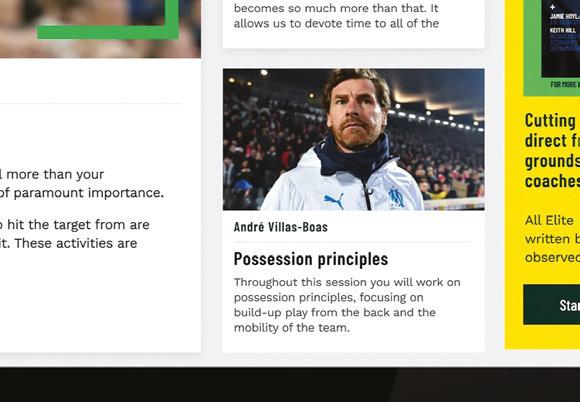
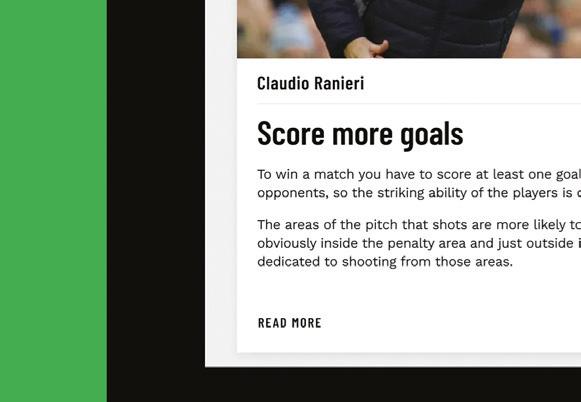

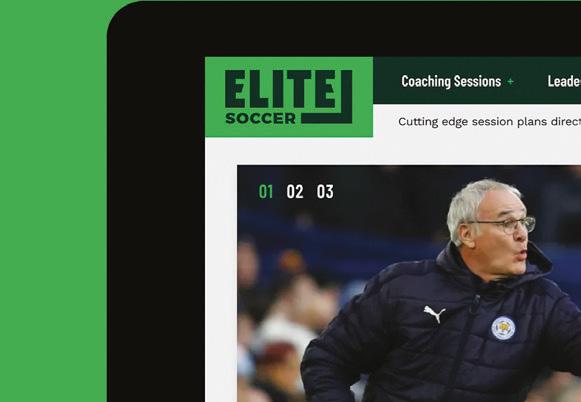
“I wish I’d had it when I started coaching”
Sir Alex Ferguson
“A fantastic magazine”
Arsè ne Wenger
“l look forward to receiving every issue”

Jose̓ Mourinho
CELEBRATING 10 YEARS AS THE COACHES’ CHOICE
time: emotional and physical exhaustion, reduced personal accomplishment, and a cynicism towards the job.
One high-performance coach described their job as like being chased by a grizzly bear. What you need most, of course, is for the bear to stop chasing you, but it’s not going to; that’s just the nature of the industry you’re in. Instead, you need to recognise that your wellbeing is not dependent solely on the organisation, but on you as well.
It’s important to prioritise self-care as a key performance strategy, and find ways to take a pause from running from the bear. There are four main elements to self-care to consider here: self-awareness, selfcompassion, personal meaning and community.
People who are responsible for the development of others are really good at assessing other people’s performances, but less so at reflecting on themselves and their own emotions. There are some important questions you could ask yourself here as part of your personal performance review: What are my stressors? What does not coping feel like? What drains me, and what happens when I get tired? How would someone else know that I was stressed?
It’s useful also to think about what you might need over the next seven days in order to deal better with what’s coming your way, whether practically speaking or emotionally, and whether you have actually communicated that to those around you. What can they do to help, and how can they minimise frustrations and support you more?
Of particular importance to self-compassion are self-kindness and what we call ‘common humanity’. When we’re stressed it’s easy to imagine that it’s all about us and that our experience is somehow unique, so it’s important to recognise that it is far from it. We all respond in similar ways to stress and we do so all the time. Mindfulness can also be useful in self-compassion. When we learn to be more aware of what we’re thinking and feeling without judgement it allows us to take a step back away from those thoughts and emotions.
Another way to practise selfcompassion is to write down how you were feeling the last time you felt stressed, then note down what you might say to a friend if they told you they were feeling that way. What words and tone of voice might you use? Committing to taking this external perspective a little more often can help to counter our
natural negativity bias and help us to be less self-critical.
Wellbeing doesn’t mean the same to everyone. To one person it’s going for a run each morning and making time for a proper break at lunch, while for someone else it’s just about clinging on and making it through the week. It’s important to think about what wellbeing looks like to you and whether or not that is sustainable.
Finally, we need to recognise that management in a highperformance environment is all-encompassing, so achieving a genuine work-life balance is pretty much impossible. It’s perhaps more useful to think in terms of finding harmony, where you nurture not just the day-today professional side to your life, but all of the other elementsyour learning, family, health, etc – as well. This is vital, because if your whole identity is tied up in being a coach or manager you are left vulnerable. Should that element be taken away, you would be left with nothing.
Ultimately, the bear is going to keep coming. However, by choosing to prioritise self-care strategies in your performance plan, you will allow yourself enough time to pause and refill your cup.
When making an apology or accepting responsibility for something it’s essential that you express genuine and sincere remorse. It’s a good idea to work through your thoughts and the key messages you want to get across in advance of a public statement, however the most authentic apologies sound unscripted and from the heart.
For people to accept your apology as genuine and for you to learn and move on in a positive way you will need to recognise publicly the consequences of your behaviour, decision or action on your team, colleagues, organisation or other stakeholders. Try to see the situation from other perspectives to understand the extent of the damage caused.
There is a big difference between admitting that you have done something wrong or that you should have acted differently and simply regretting the outcome. ‘I’m really sorry I lost my temper at you’ is a true apology, whereas ‘I’m sorry you felt I was angry at you’ is not.
There is a place for offering justifications and excuses or even outright denial, but that isn’t true contrition. As soon as you appear to be making excuses, the power of the apology and the potential benefits for both you and the recipient are lost.
A well-made, authentic apology enables all parties to draw a line under events, gain back some self-respect and move forward in a positive direction. However this relies on proper reflection. Ask what you could have done differently and what the outcomes might have been. Challenge yourself to change.
Research shows that appropriate use of contrition can boost trustworthiness and help to re-establish social connections. People tend to be more willing to believe those who take responsibility for an error or fault and trust them more in the future than those who point the finger elsewhere.





Hundreds of children from across England and Wales took part in the Premier League Primary Stars Football Tournament in May.
Held for the first time since 2019 because of the Coronavirus pandemic, an expanded competition featured two days of football at Vicarage Road, the home of Watford FC. More than 2,300 schools entered qualifying tournaments for the right to represent their Premier League, EFL or National League clubs over the two days. The 40 successful schools took part in Under-11 Mixed and Under-11 Girls competitions.
The tournament is the highlight of the PL Primary Stars programme, which is delivered by 105 professional football clubs and inspires children in more than 18,000 schools. An important part of the programme is the dissemination of resources to stimulate discussions among young people around equality and discrimination. Ahead of the tournament, Brentford Striker
Ivan Toney took part in a No Room for Racism classroom workshop run by Brentford Community Sports Trust.
Toney, who had only weeks before been subjected to matchday racist abuse, talked to the children at Rabbsfarm Primary School, West Drayton, about his career and dealing with discrimination.
“As a footballer, you have a duty to come across in a certain way to the people who look up to you,” he said. “I feel that, here today, I’m giving these children information that will help them to deal with certain things as they grow up, whatever they become.”
The Premier League has created No Room For Racism educational resources, for use by teachers, those clubs running its community programmes and
across the Academy Education and Player Care network.
The free teaching materials have been downloaded by more than 5,750 primary school teachers, engaging more than 170,000 pupils and covering topics such as the importance of diversity, allyship and tackling online hate.
“The sessions help the children to understand, respect and appreciate each other’s differences,” said Natasha Smith, Rabbsfarm Primary Deputy Head. “It means that they are more compassionate and more empathetic towards one another.
“One of the things we have noticed the most is that they can recognise when something in the world is unjust or unfair and that they actually have the power to do something about it.”
The FA Women’s National League launches new strategy to strengthen the third and fourth tiers of women’s football in England.


The strategy, Empowering For Success, is backed by £1m investment per season for the next three years from the Premier League. It will aim to ensure that advancements in quality across the professional game are also harnessed throughout Tiers 3 and 4 of the women’s football pyramid.
Empowering For Success has eight priority areas, each with its own strategic goal. This will enable FA WNL clubs to flourish both on and off the pitch through the development of players, workforce and infrastructure. The eight priorities are:
1. Players: Developing the training, playing and overall environment that players experience so they can be the best they can be, on and off the pitch.
2. Coaches and leaders: Developing coaches to be exceptional across the FA WNL, ensuring they are representative of society.
3. Referees: Driving upwards the standard of refereeing alongside improving the opportunity and experience of
match officials in the FA WNL.
4. Club Development: Creating an inclusive, playercentred and sustainable club network.
5. League Development: Ensuring the FA WNL keeps pace with the growth of the women’s game and offers the best-possible development opportunities to member clubs.
6. Facilities: Ensuring FA WNL clubs have access to the required infrastructure on matchdays, at training venues and off-field.
7. Commercial: Defining the FA WNL’s commercial value and engaging with partners to grow revenues and inward investment.
8. Marketing and Communications: Growing the reach and appeal of the FA WNL by increasing exposure and awareness through matchday activity and league channels, driving bigger attendances and league following.
The strategy unveils multiple commitments from the FA
WNL across the eight priority areas to achieve each strategic goal. These include increasing the number of female coaches in the FA WNL, as well as those from historically underrepresented communities; creating a dedicated pool of match officials specialising in women’s football; reviewing the competition structure; introducing minimum club requirements to support player development; and providing opportunities for players to engage in non-playing roles within football.
Empowering For Success was created in collaboration with FA WNL member clubs, ensuring a range of voices from administrators and coaches to players and fans were all given the chance to help shape the future of the league.
By 2025 the strategy hopes to increase the recognition of the FA WNL amongst women’s football fans, decrease the number of weather-related postponements per season, increase the number of league commercial partners and increase the average attendance of league fixtures.
Real Madrid manager Carlo Ancelotti celebrates Los Blancos’s 14th UEFA Champions League triumph. Real Madrid’s victory over Liverpool in Paris saw him become the most decorated manager in UCL history with four titles. A remarkable season at the Santiago Bernabéu also saw him become the first and only manager to have won league titles in all of Europe’s top five leagues.





